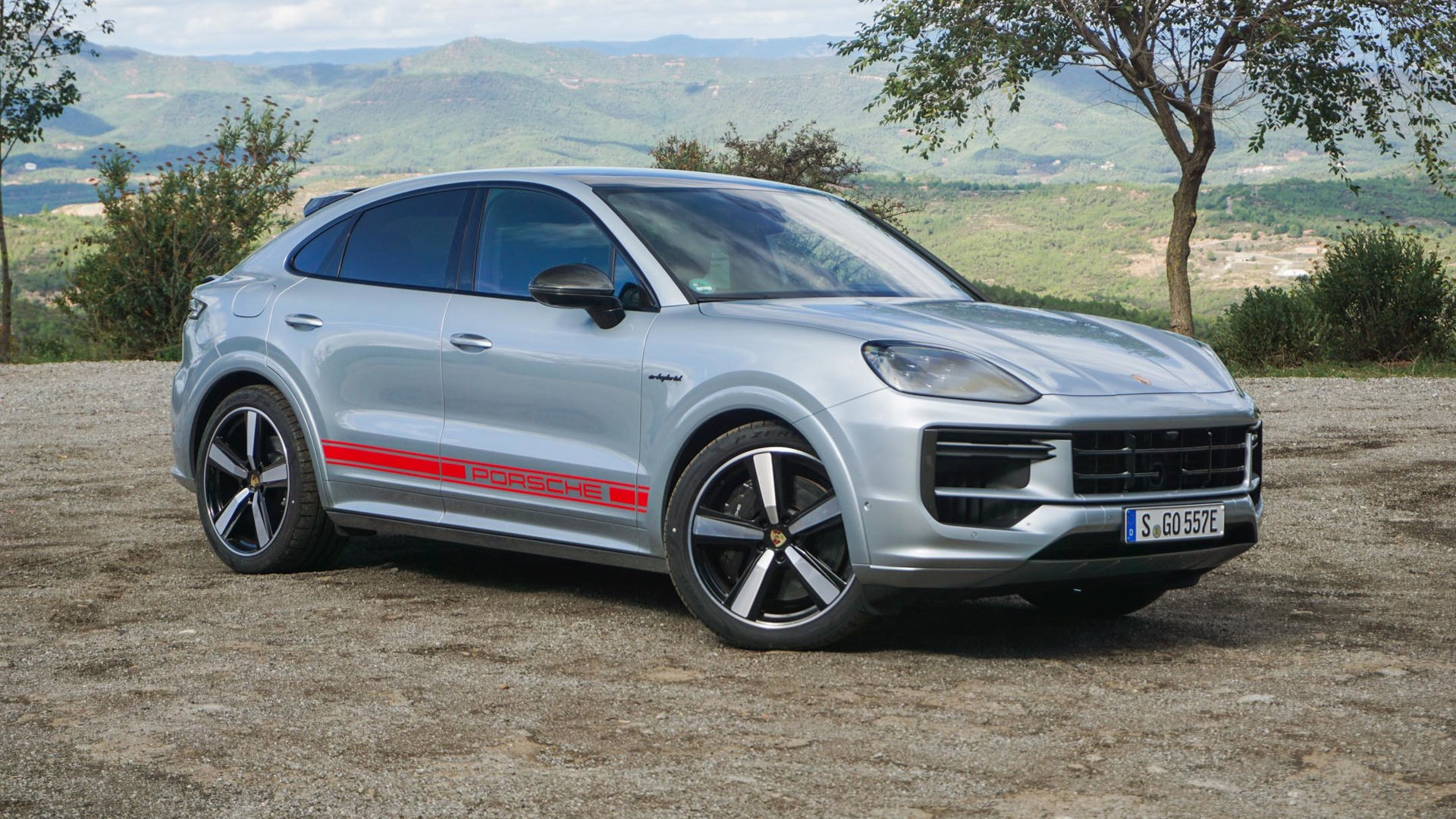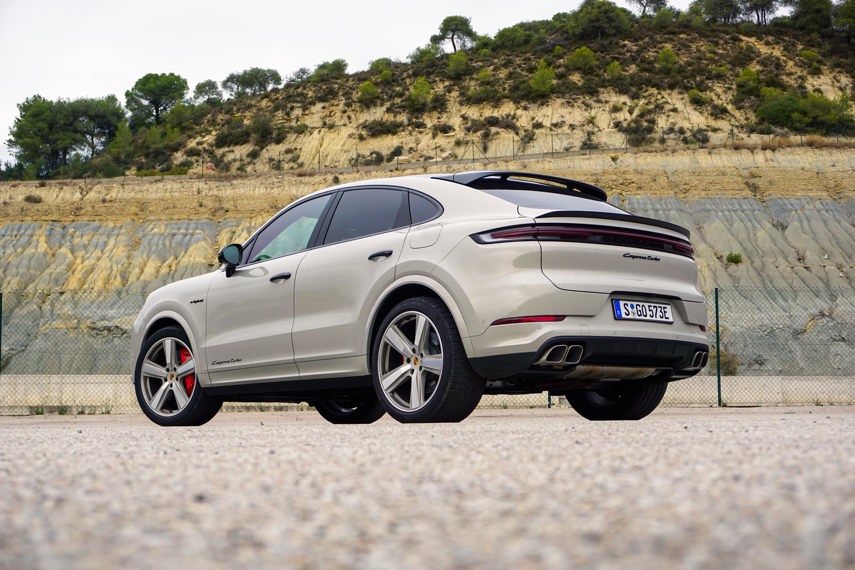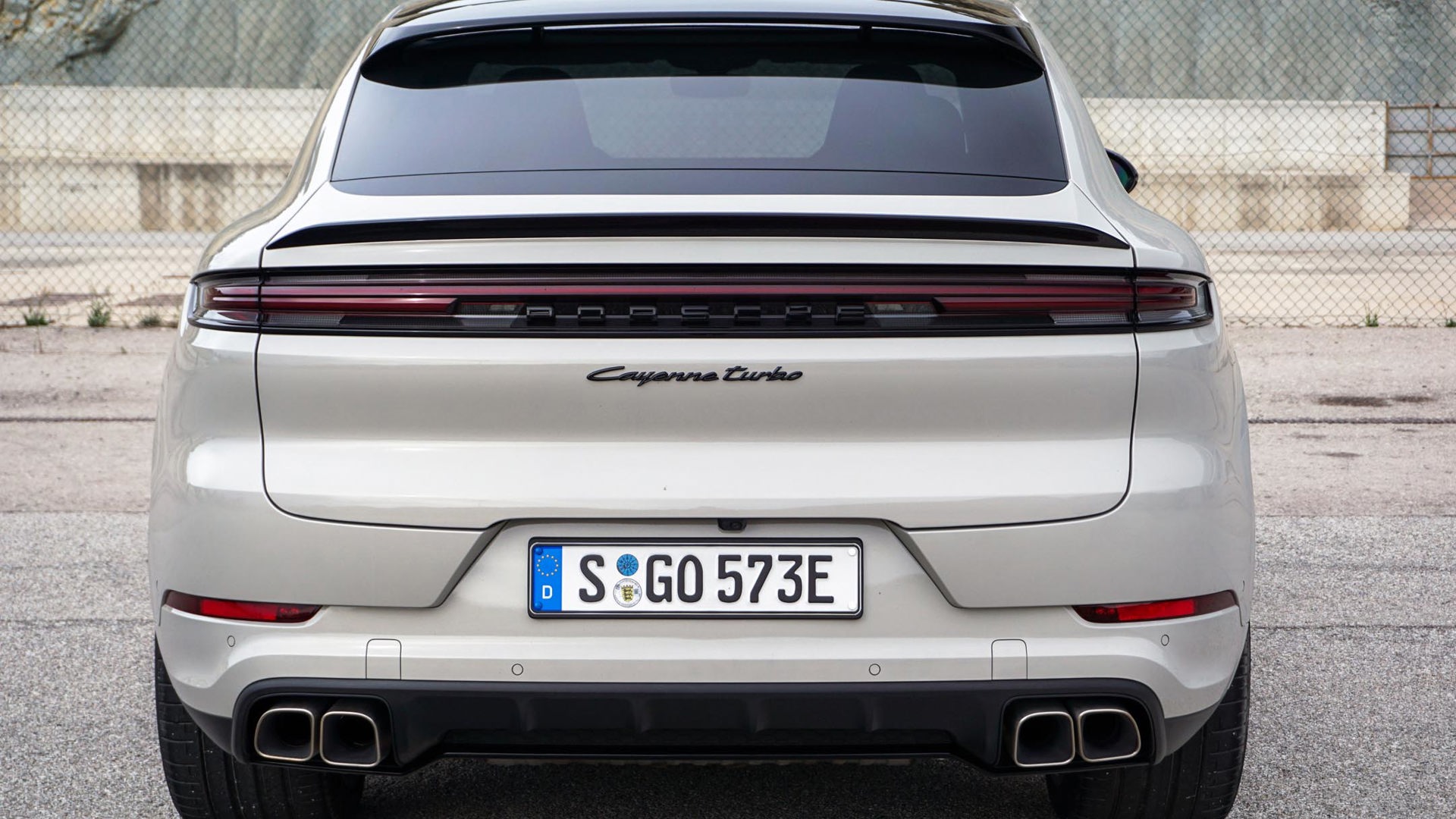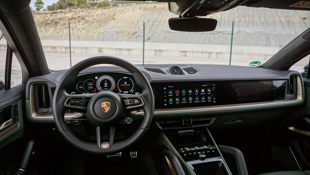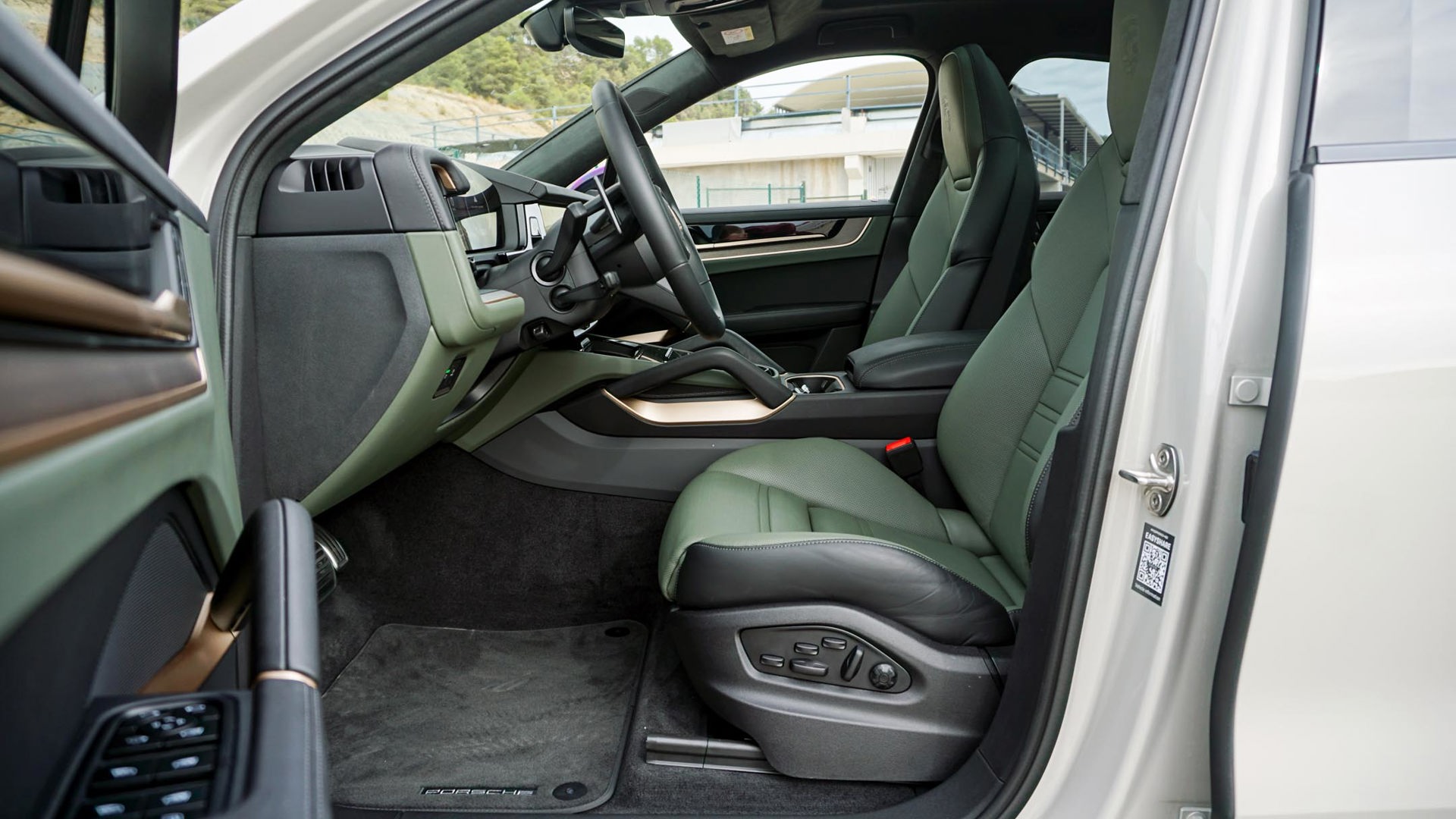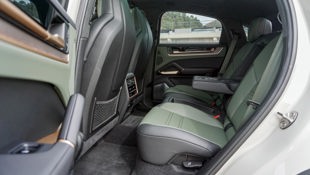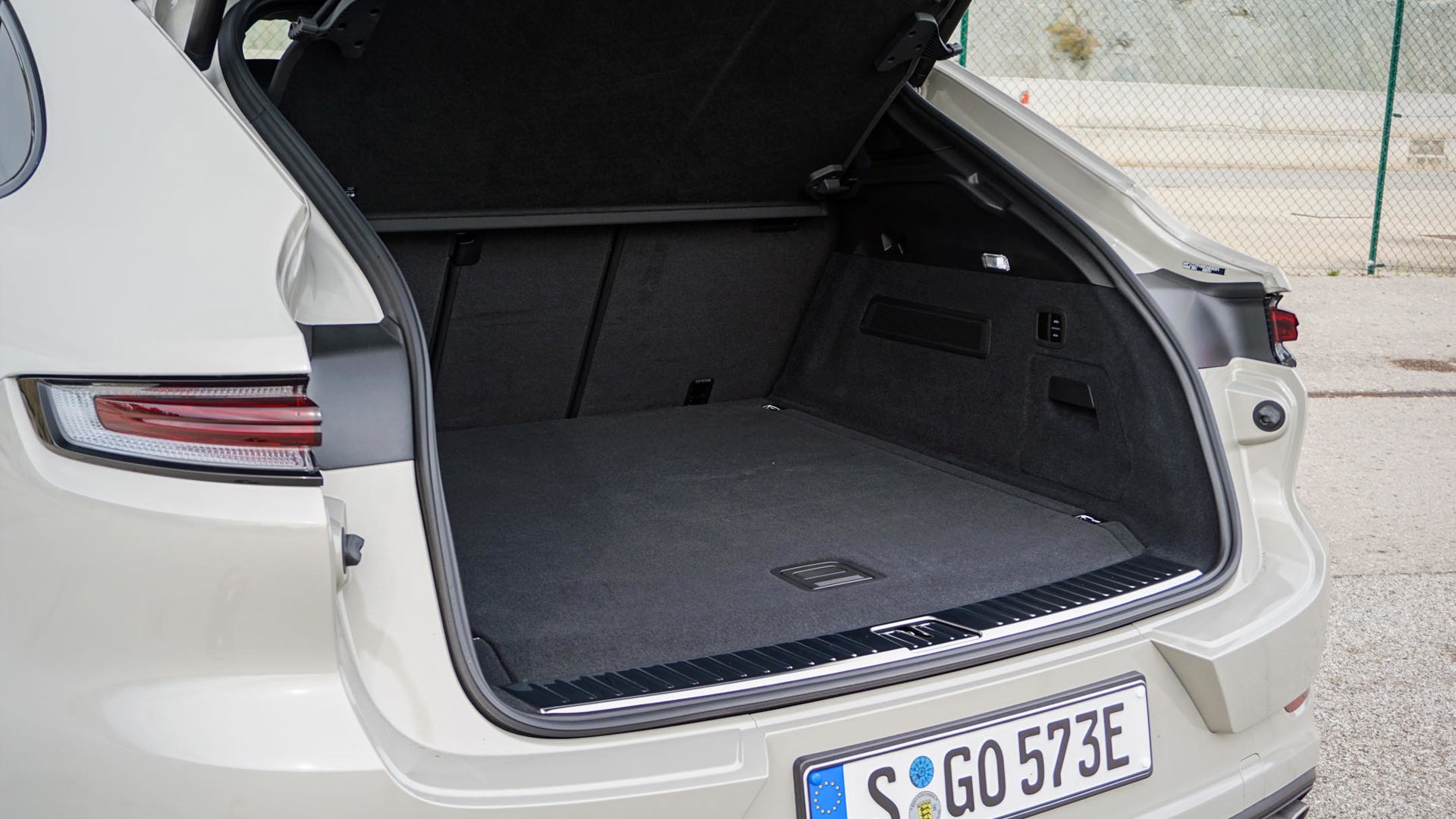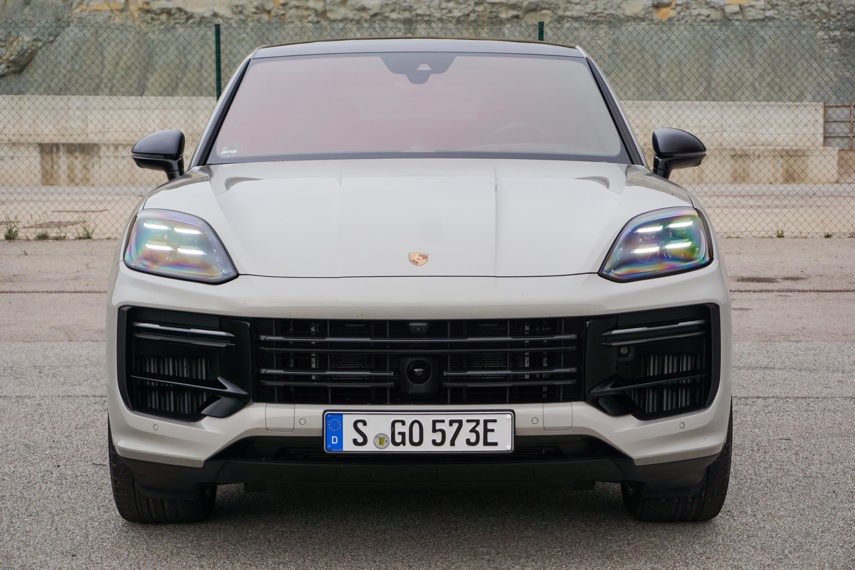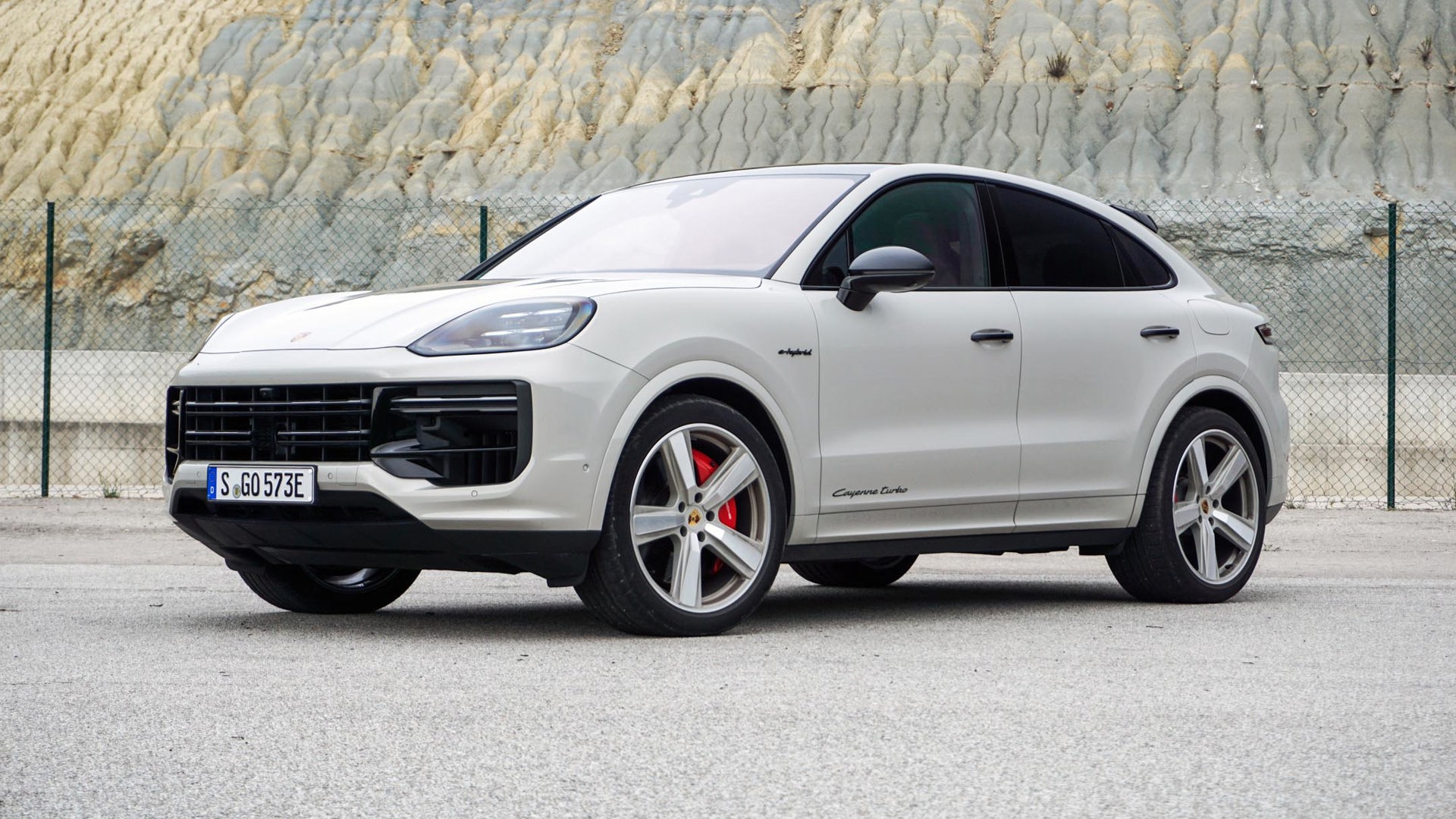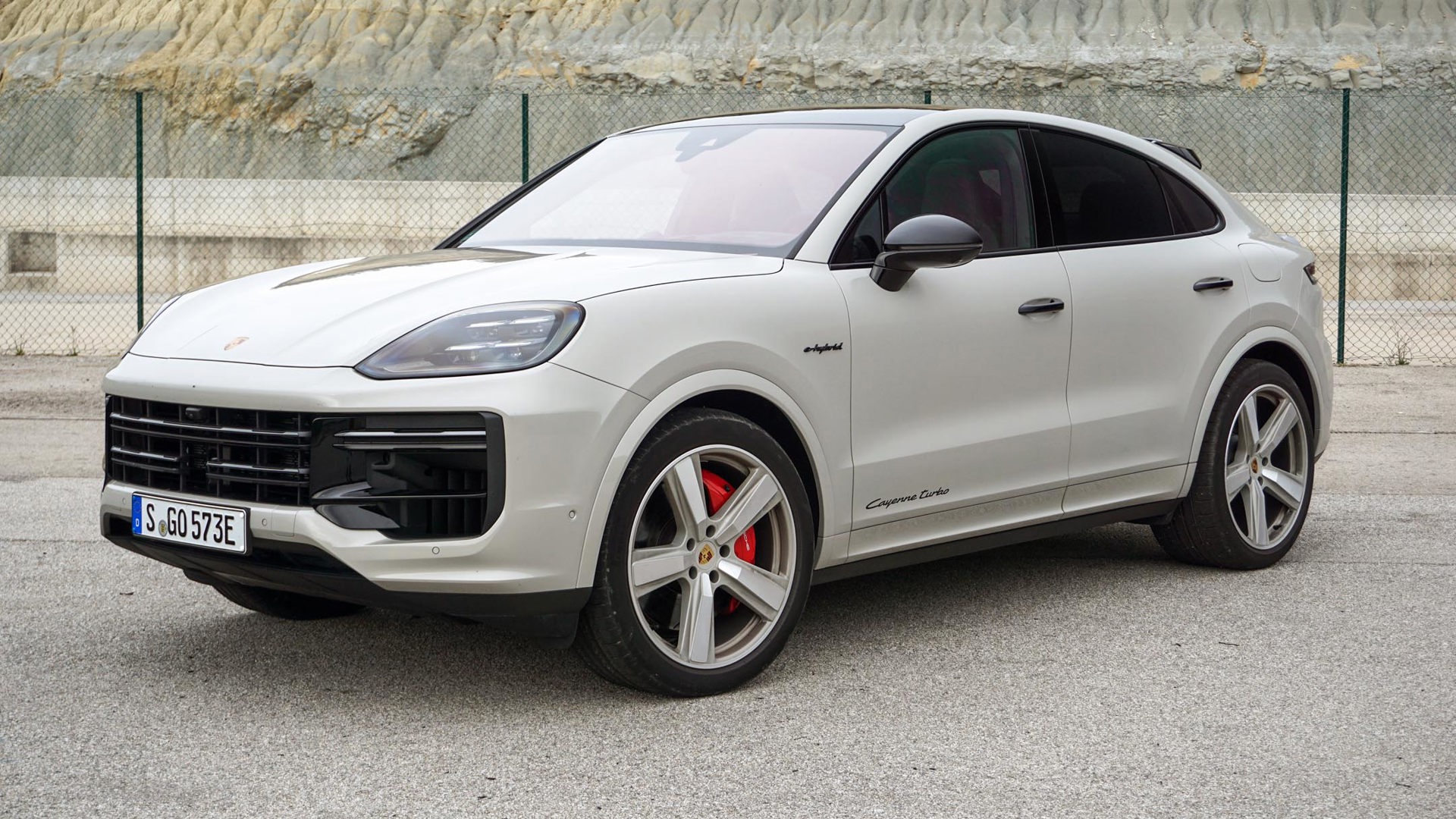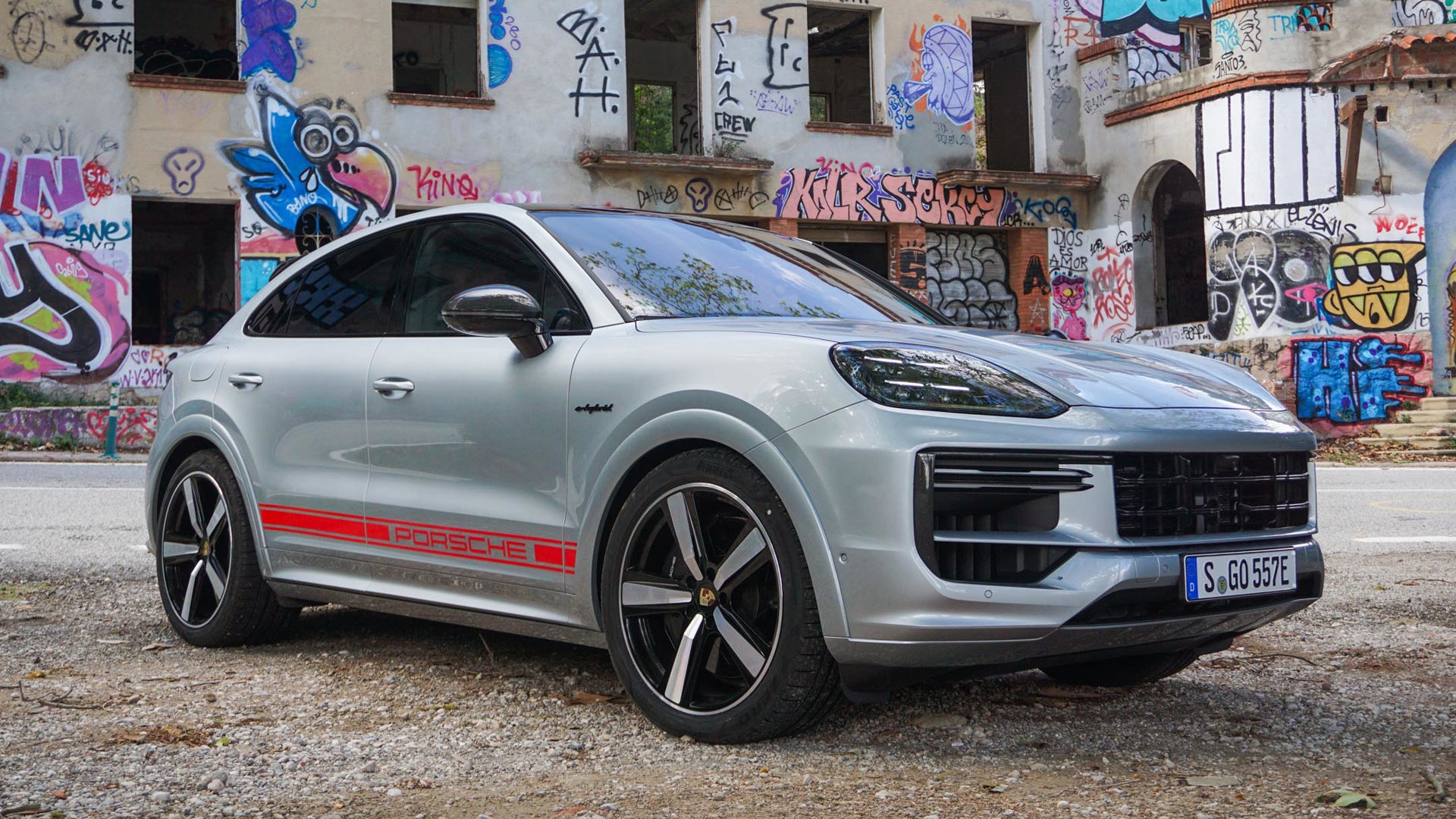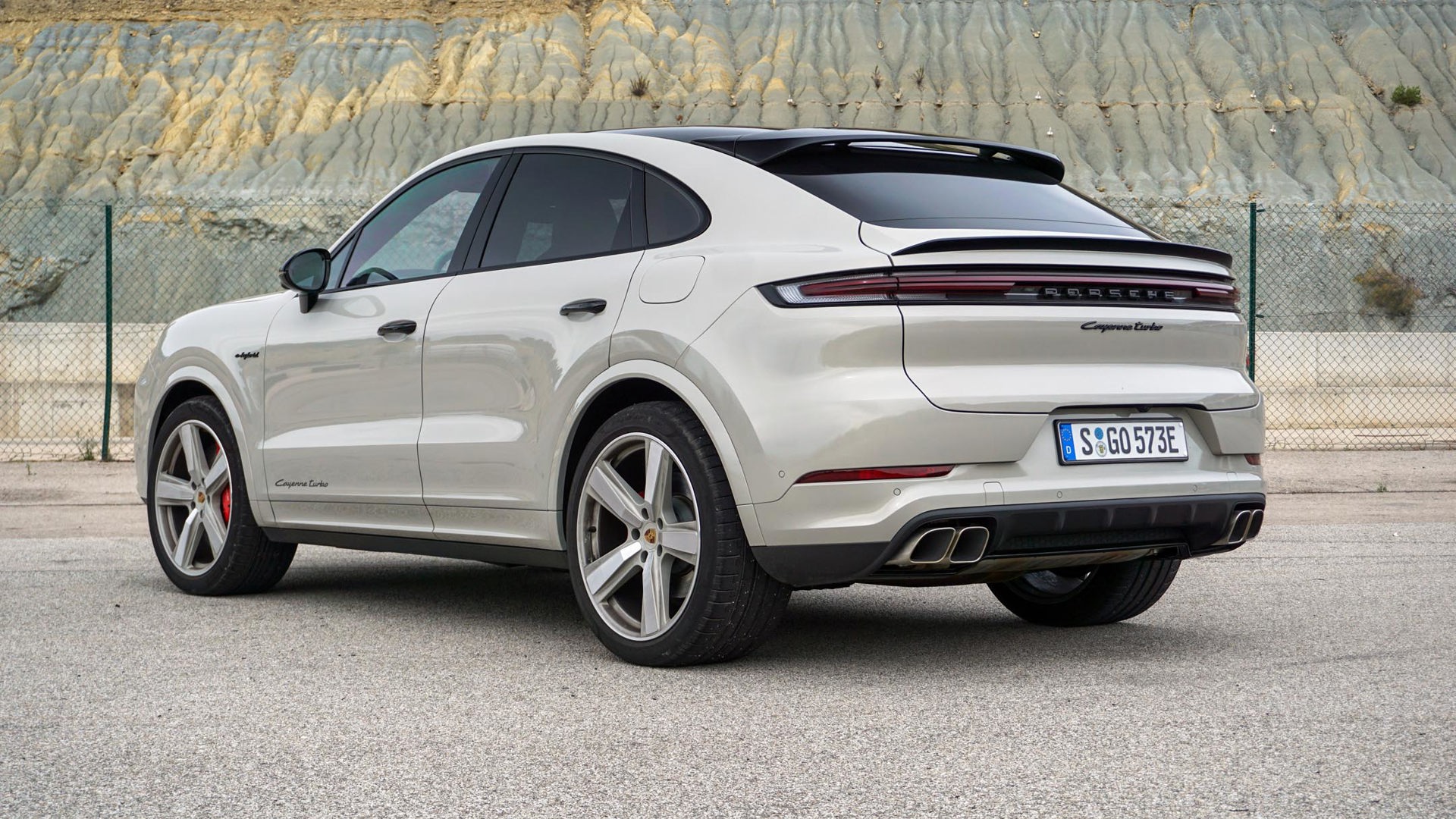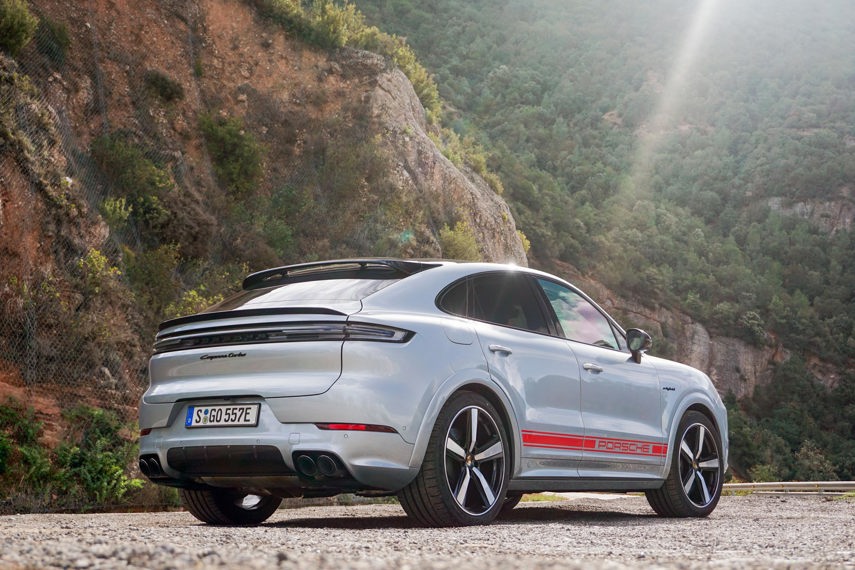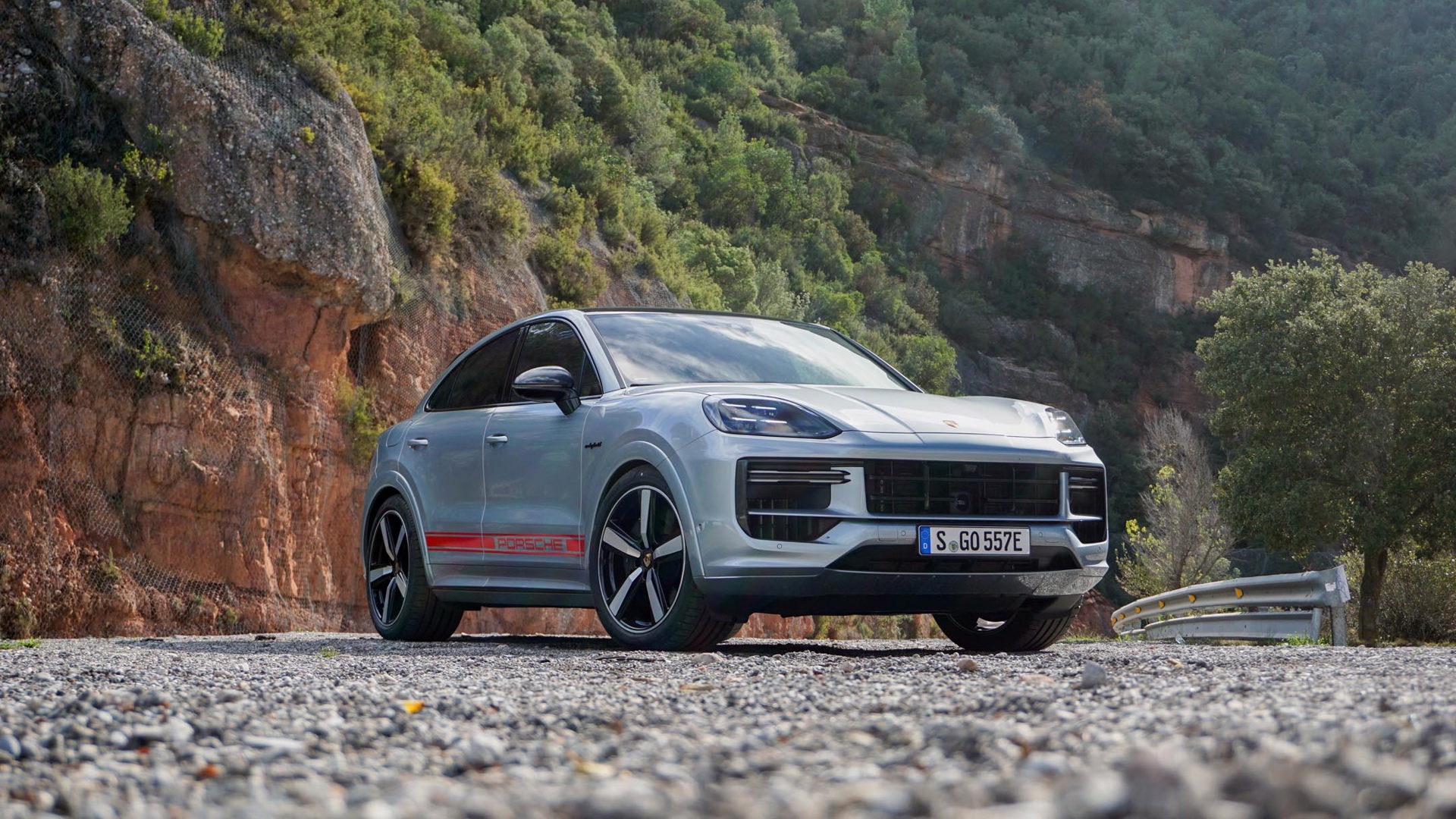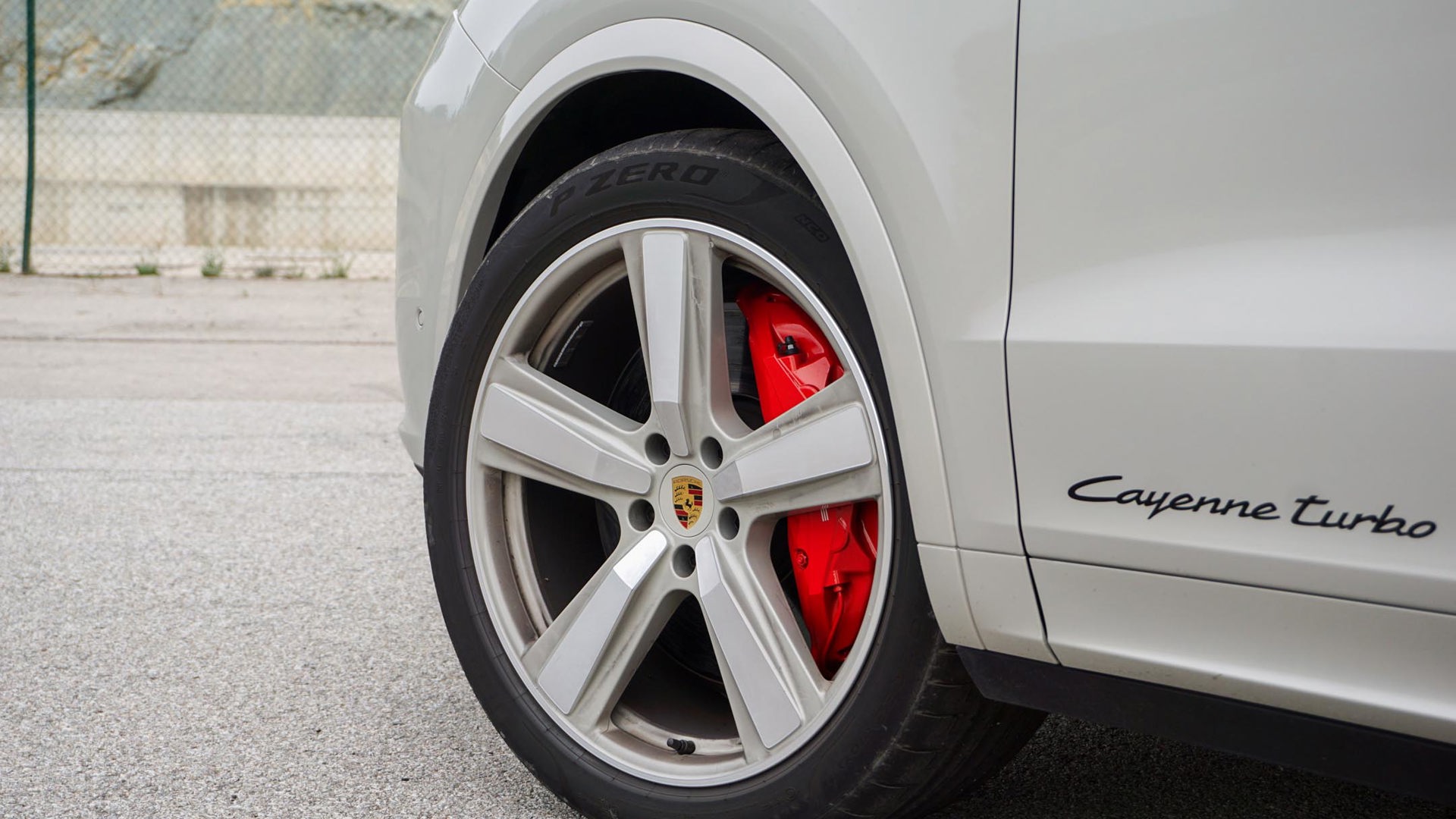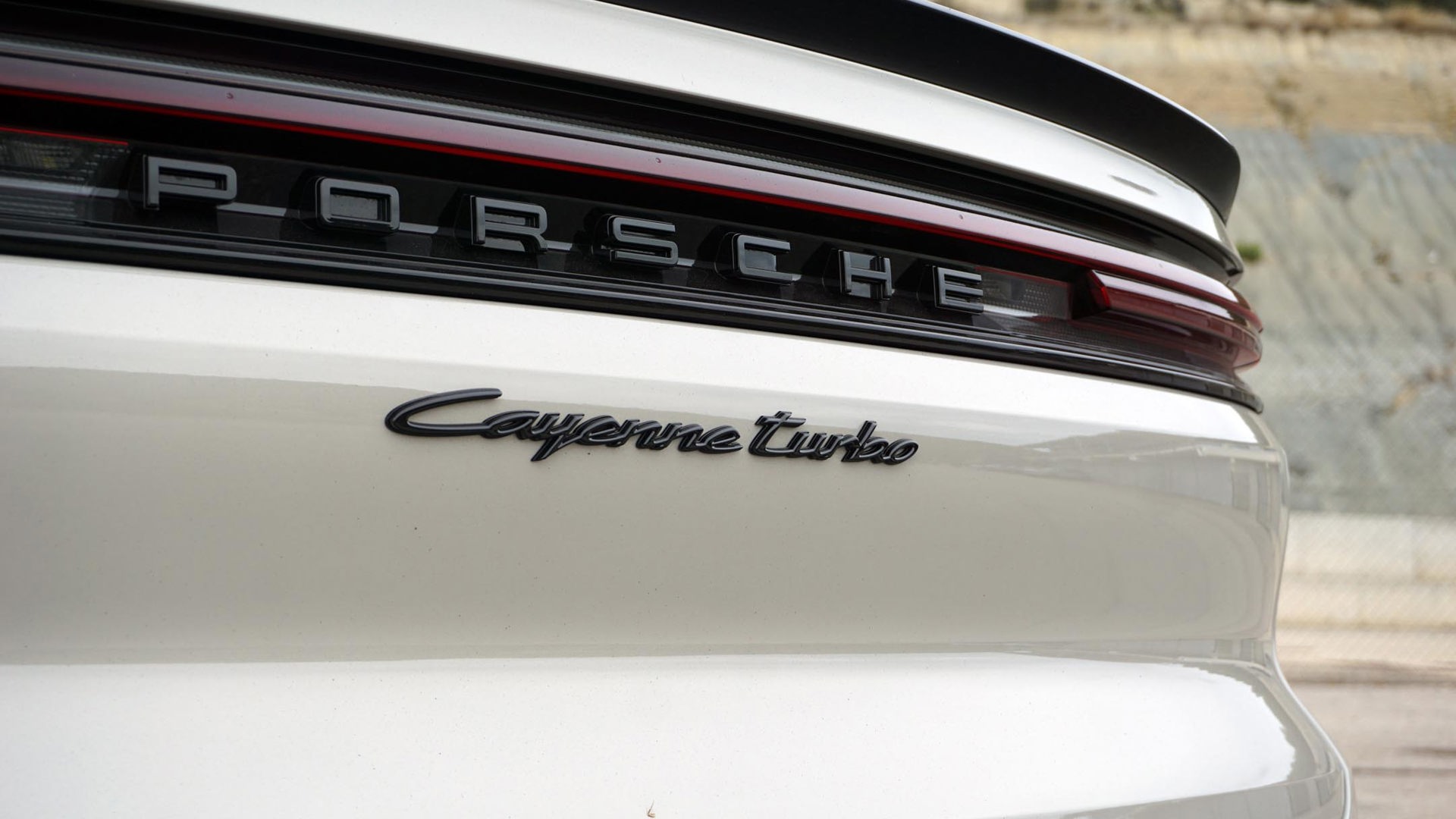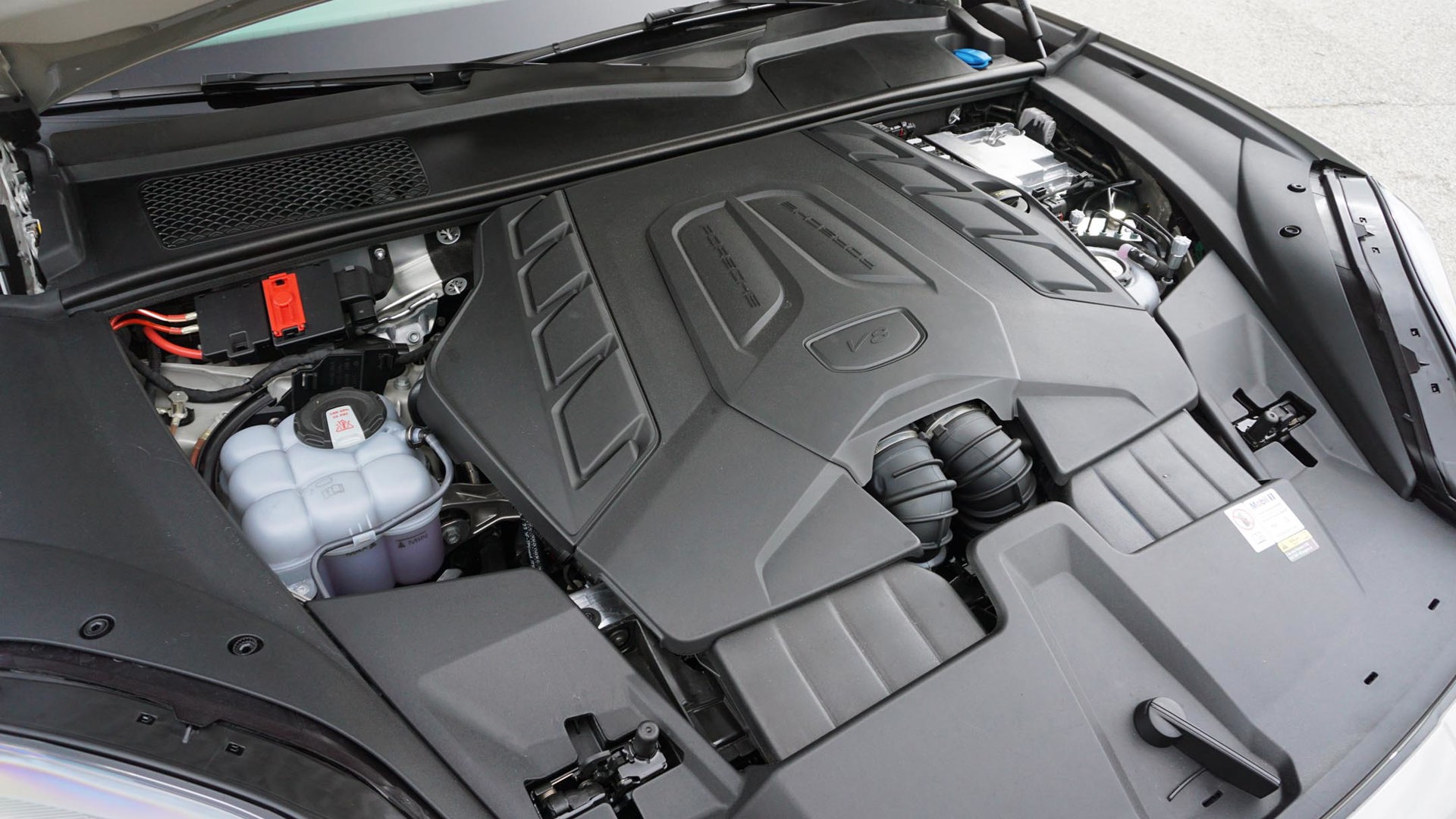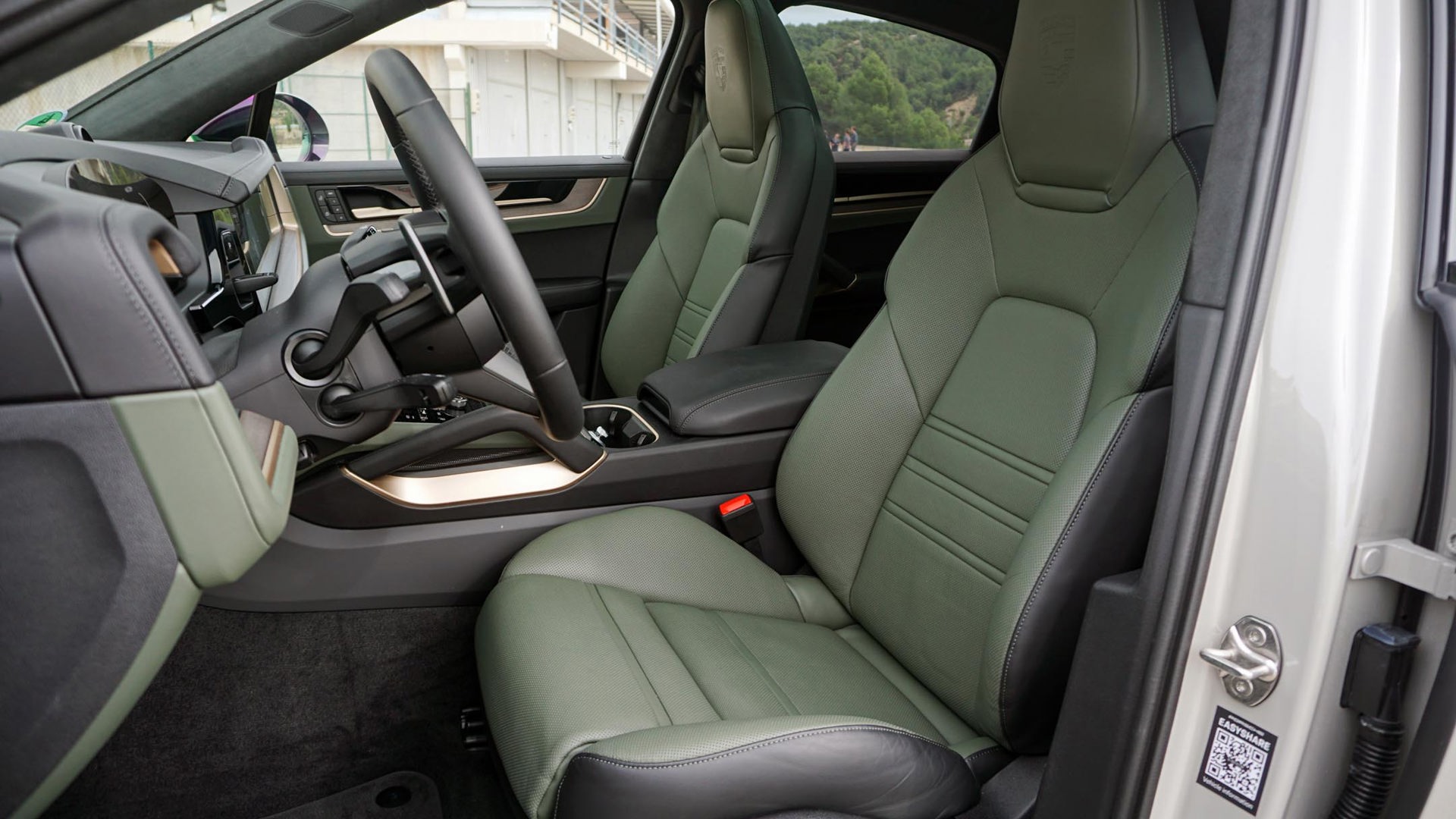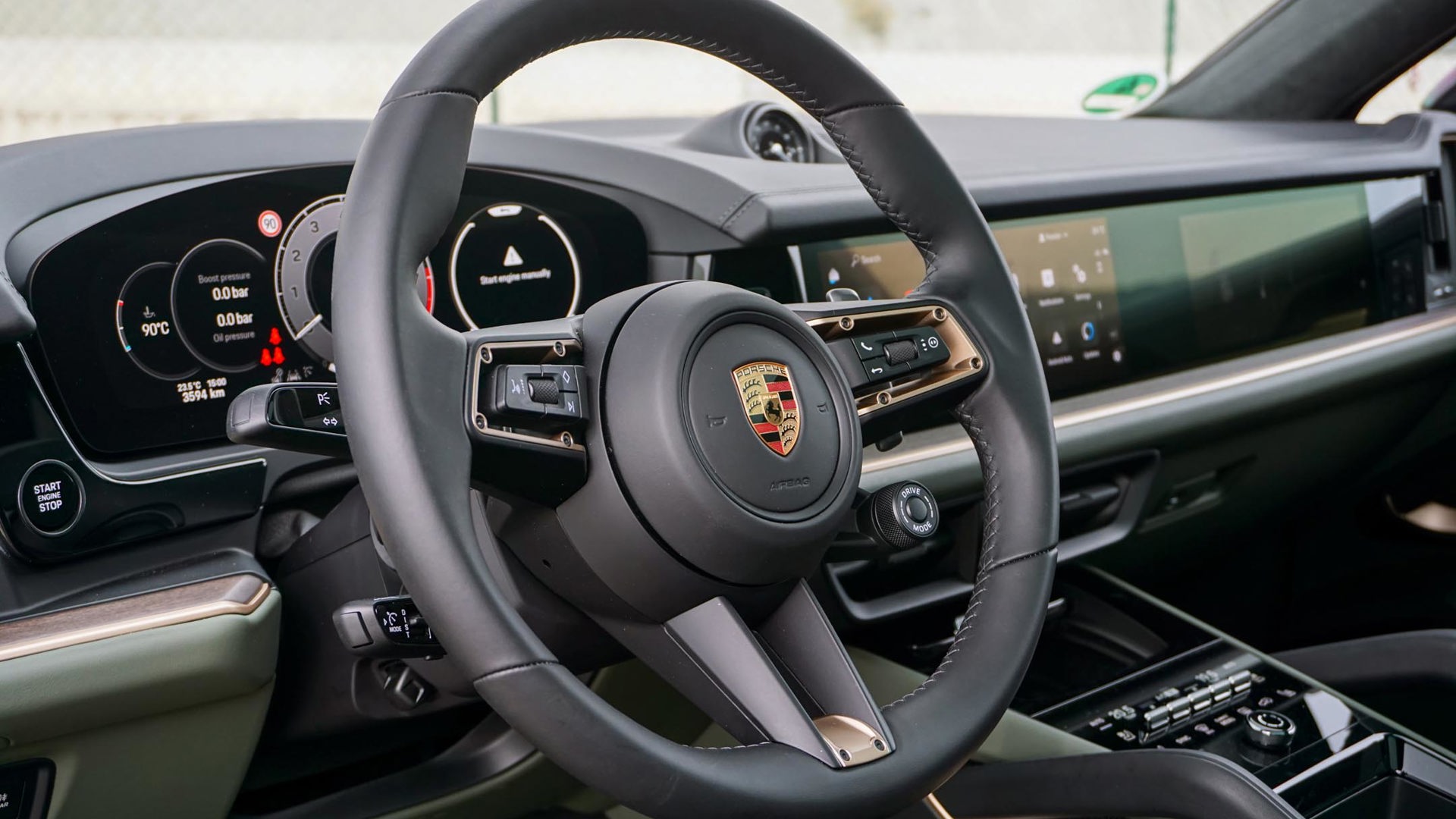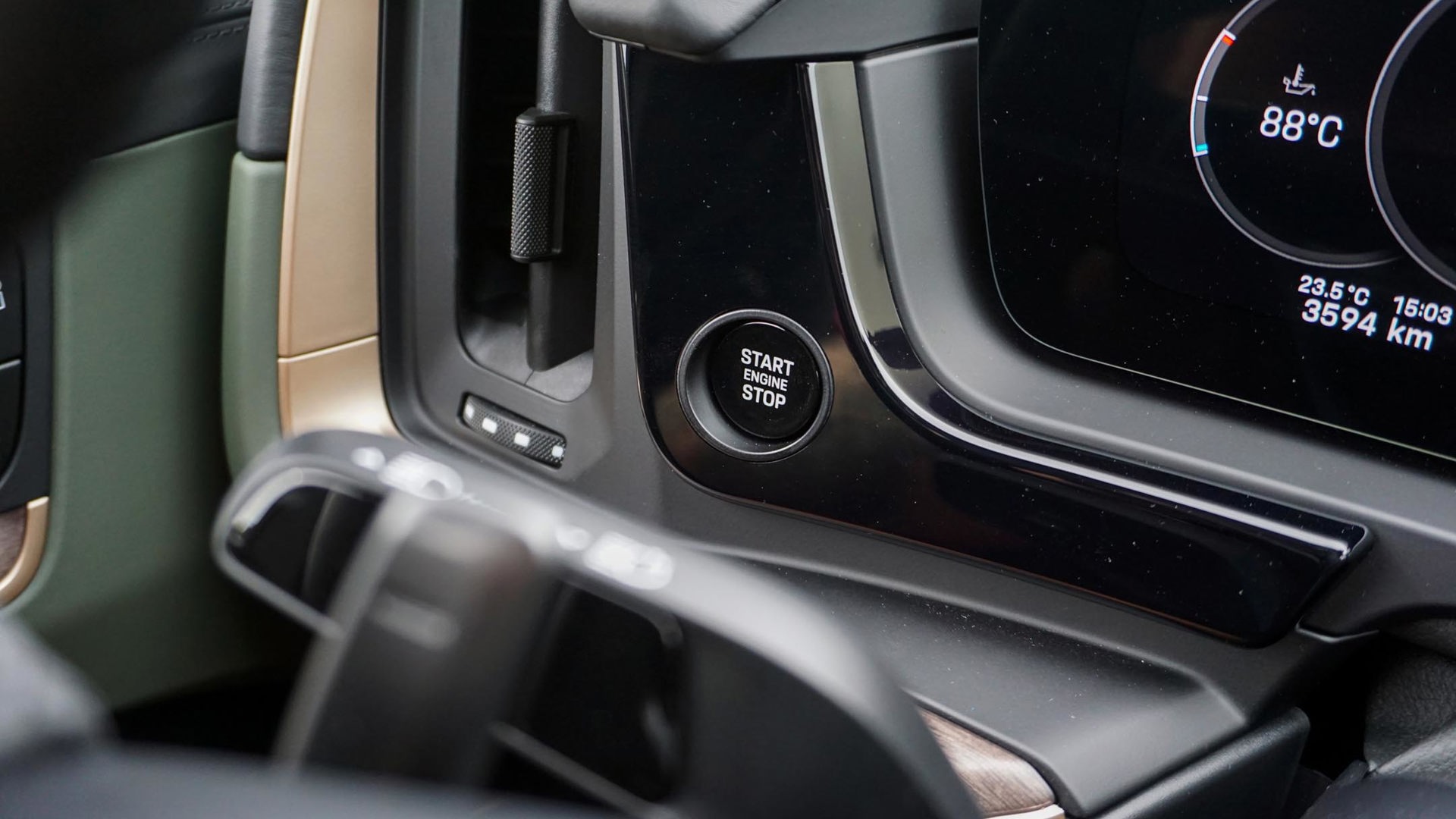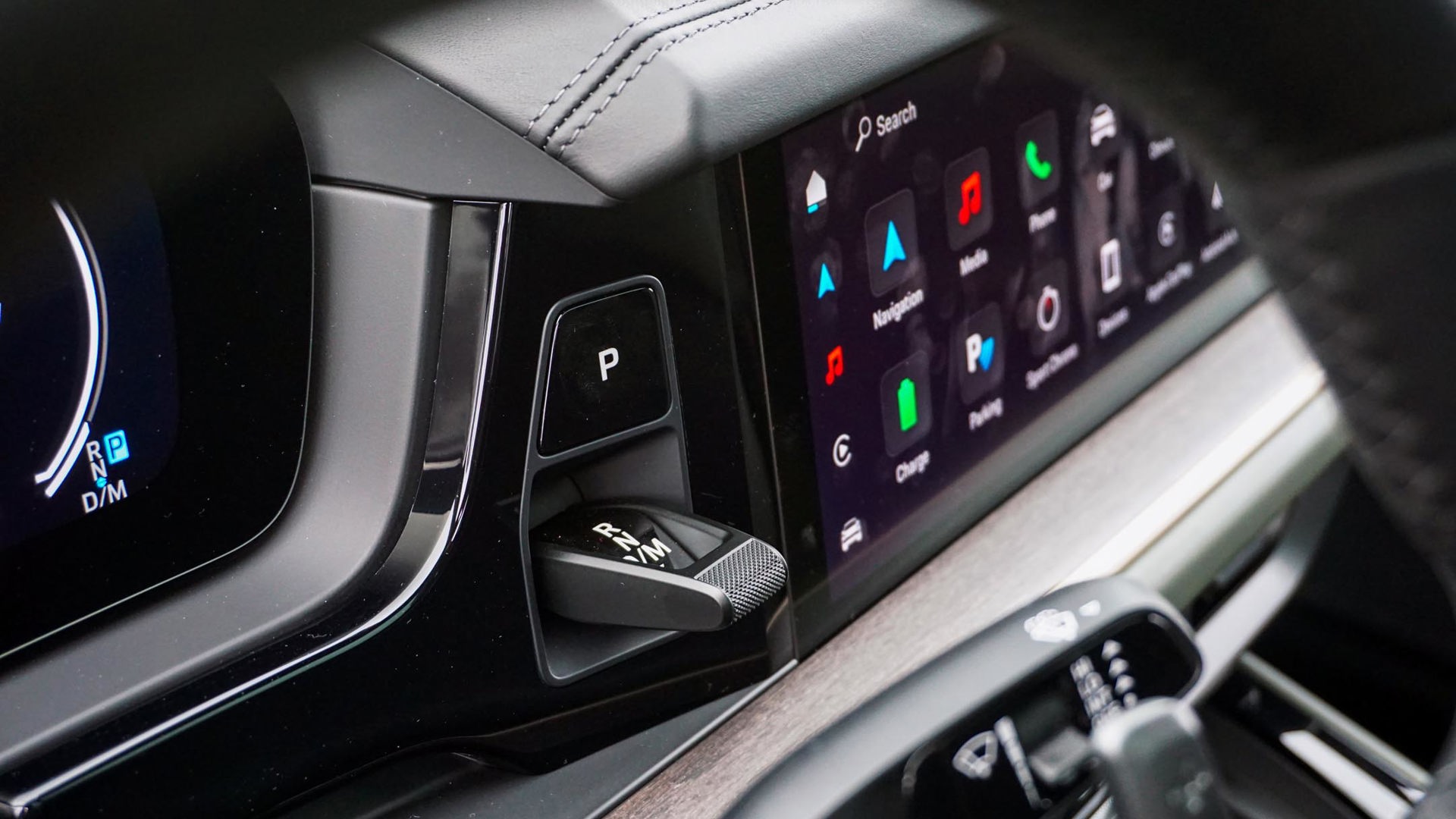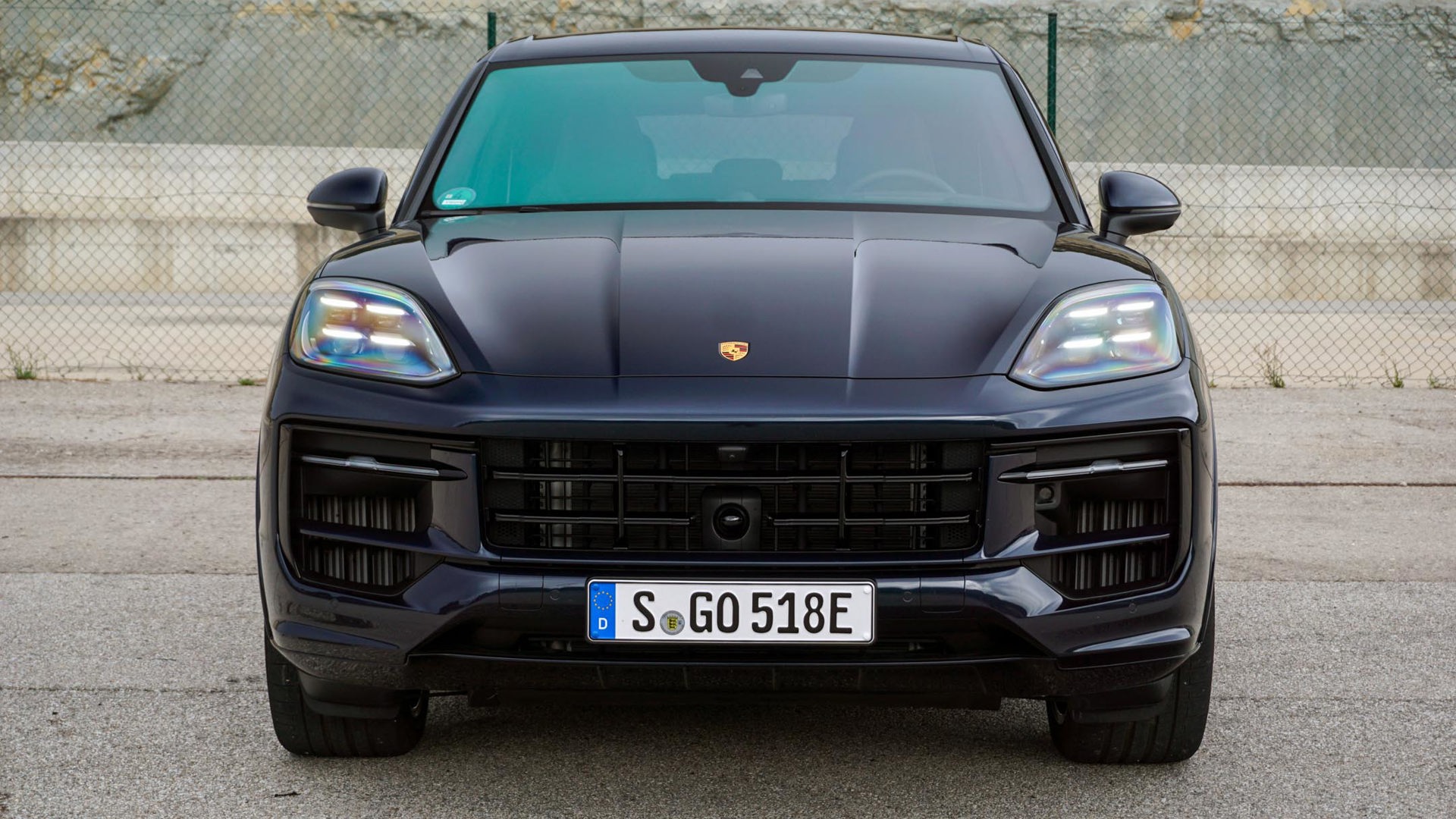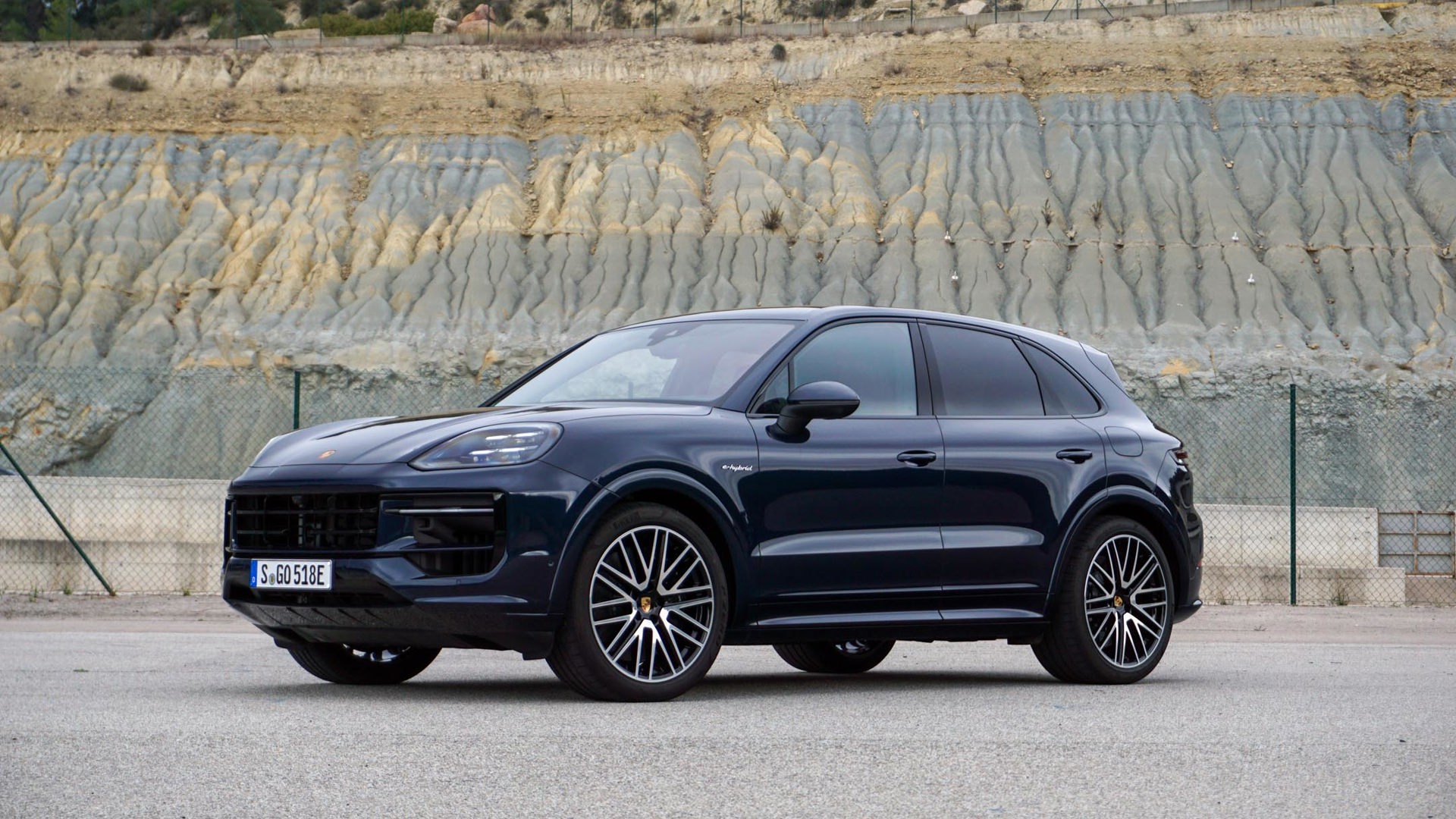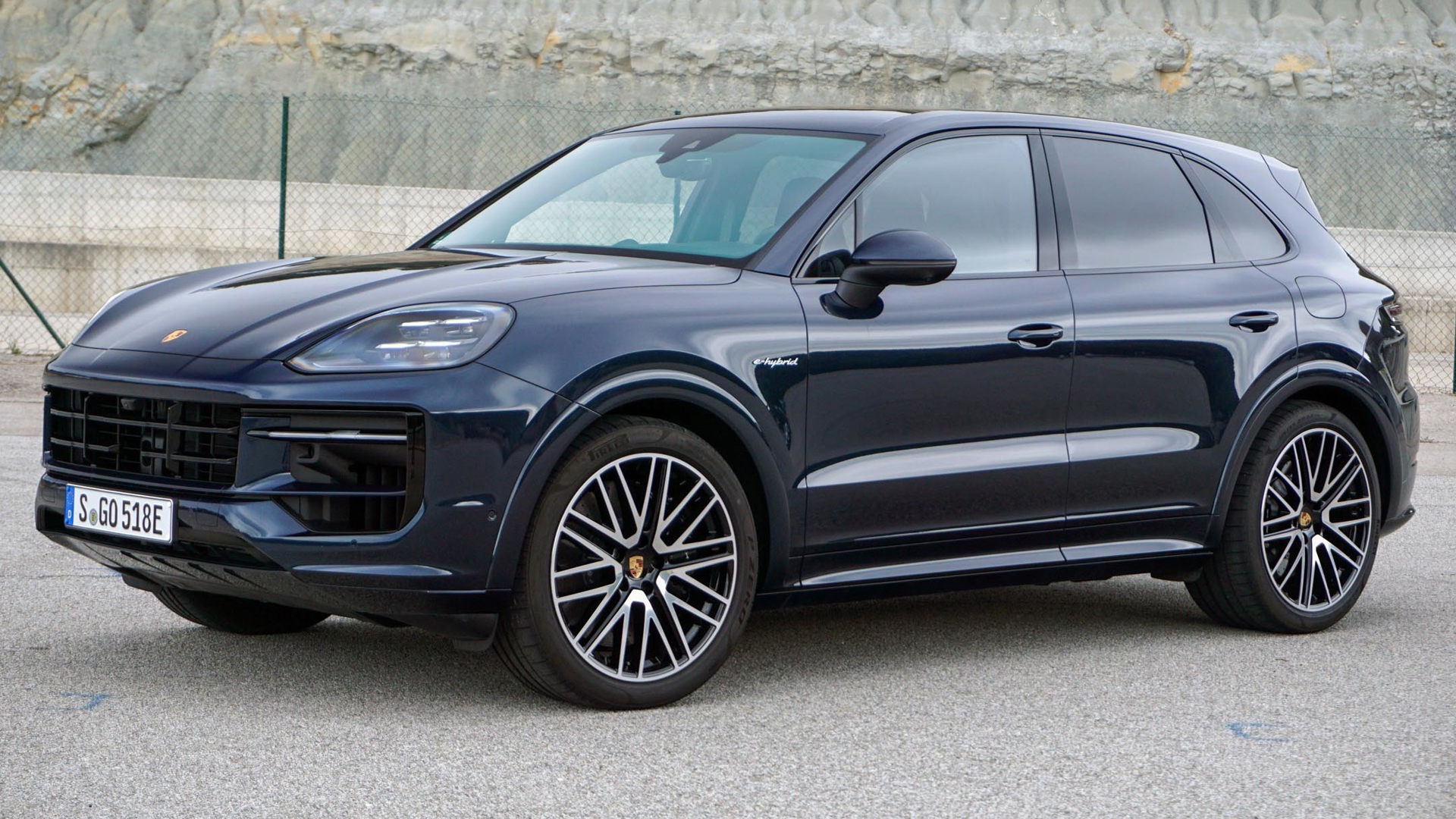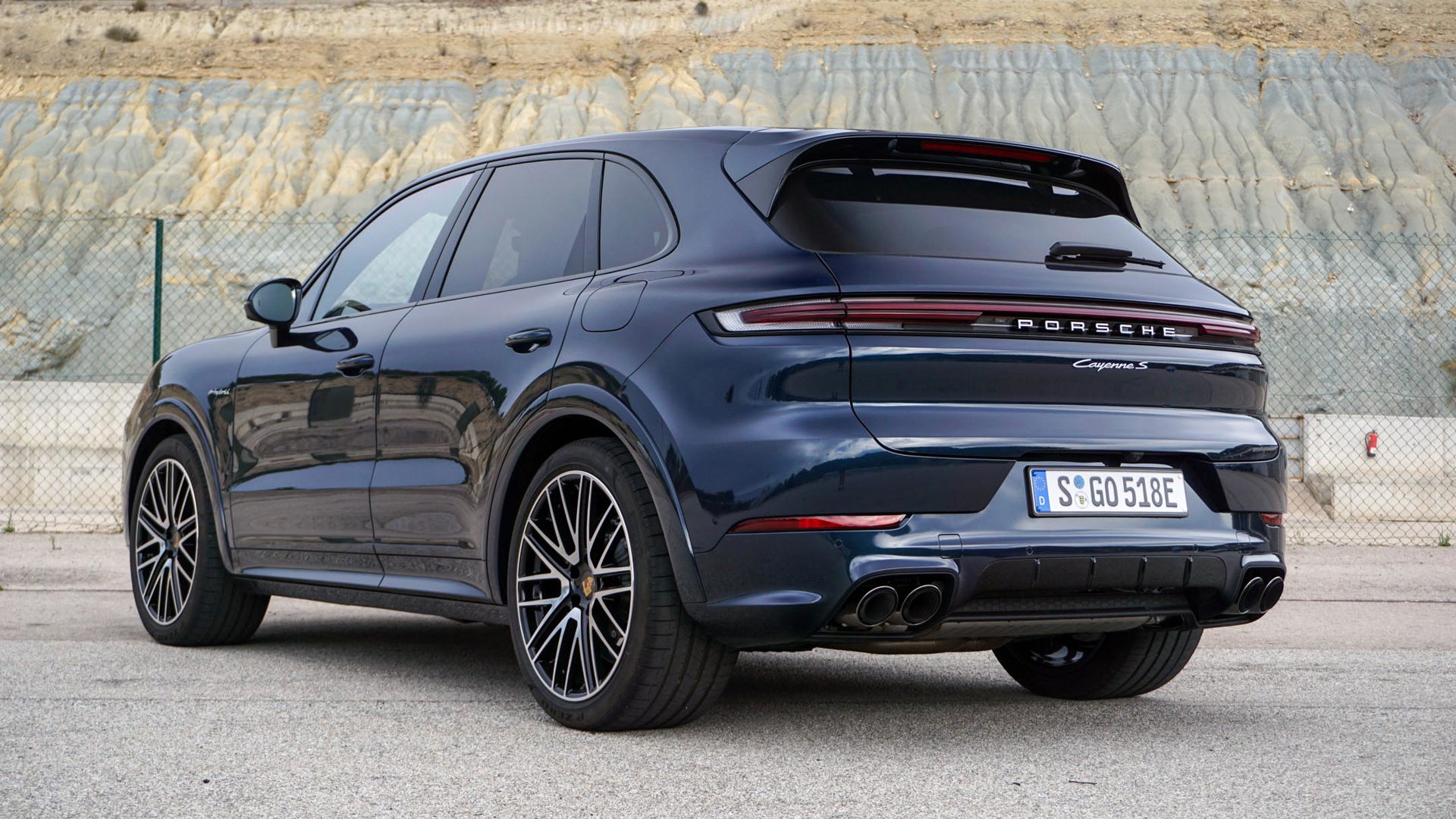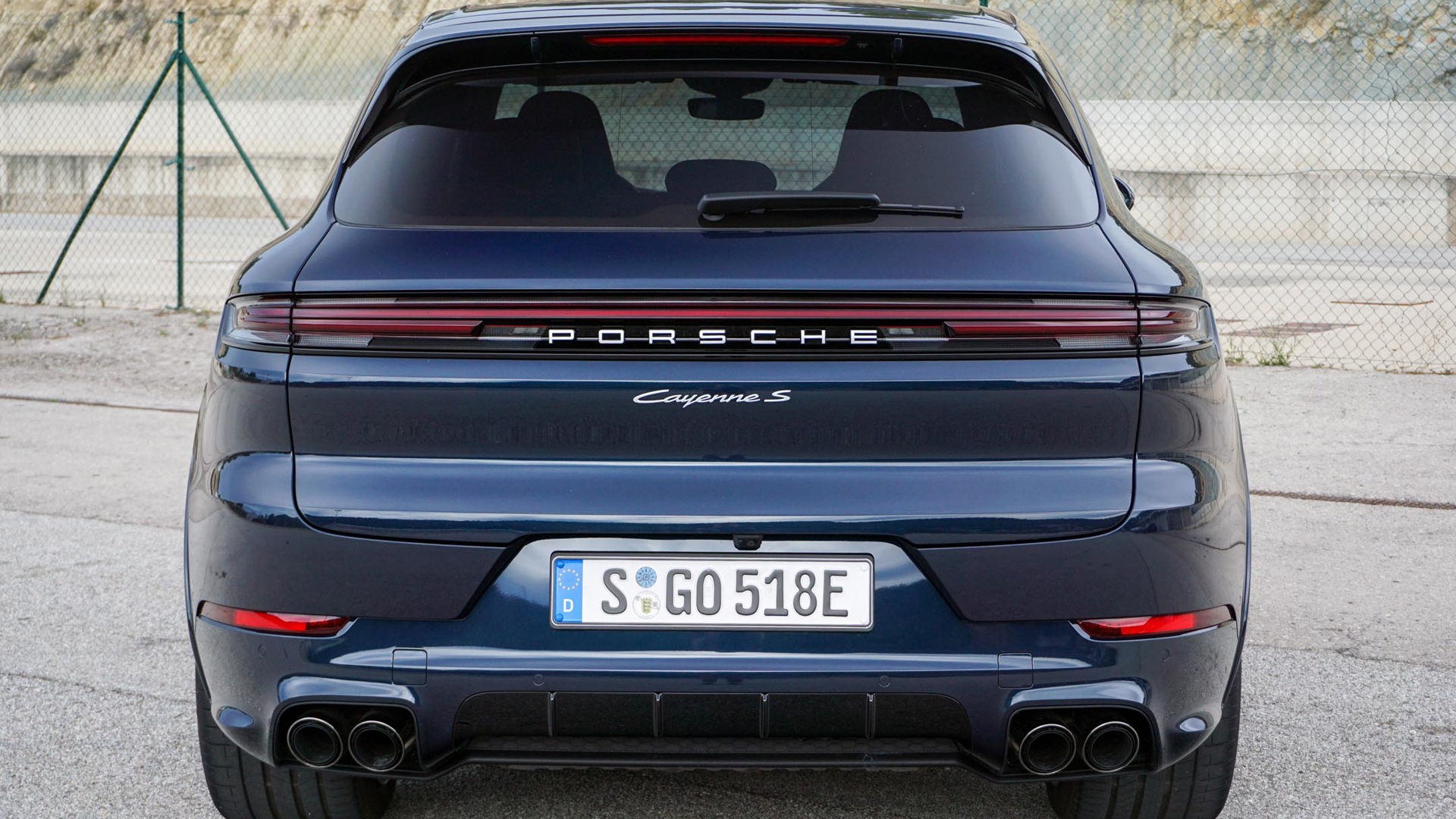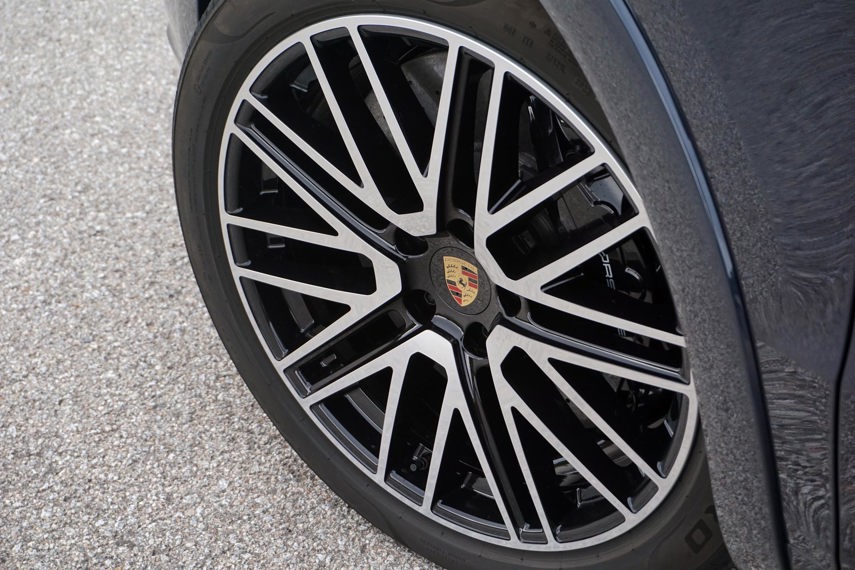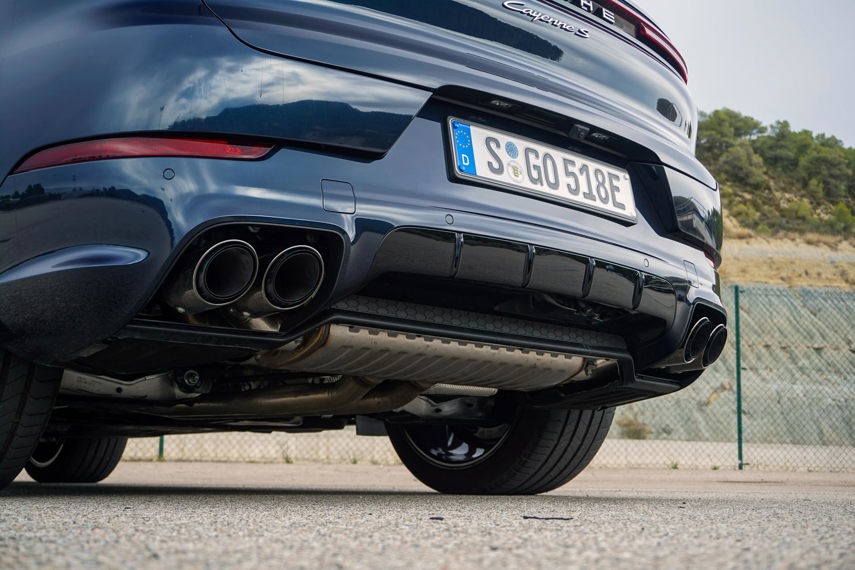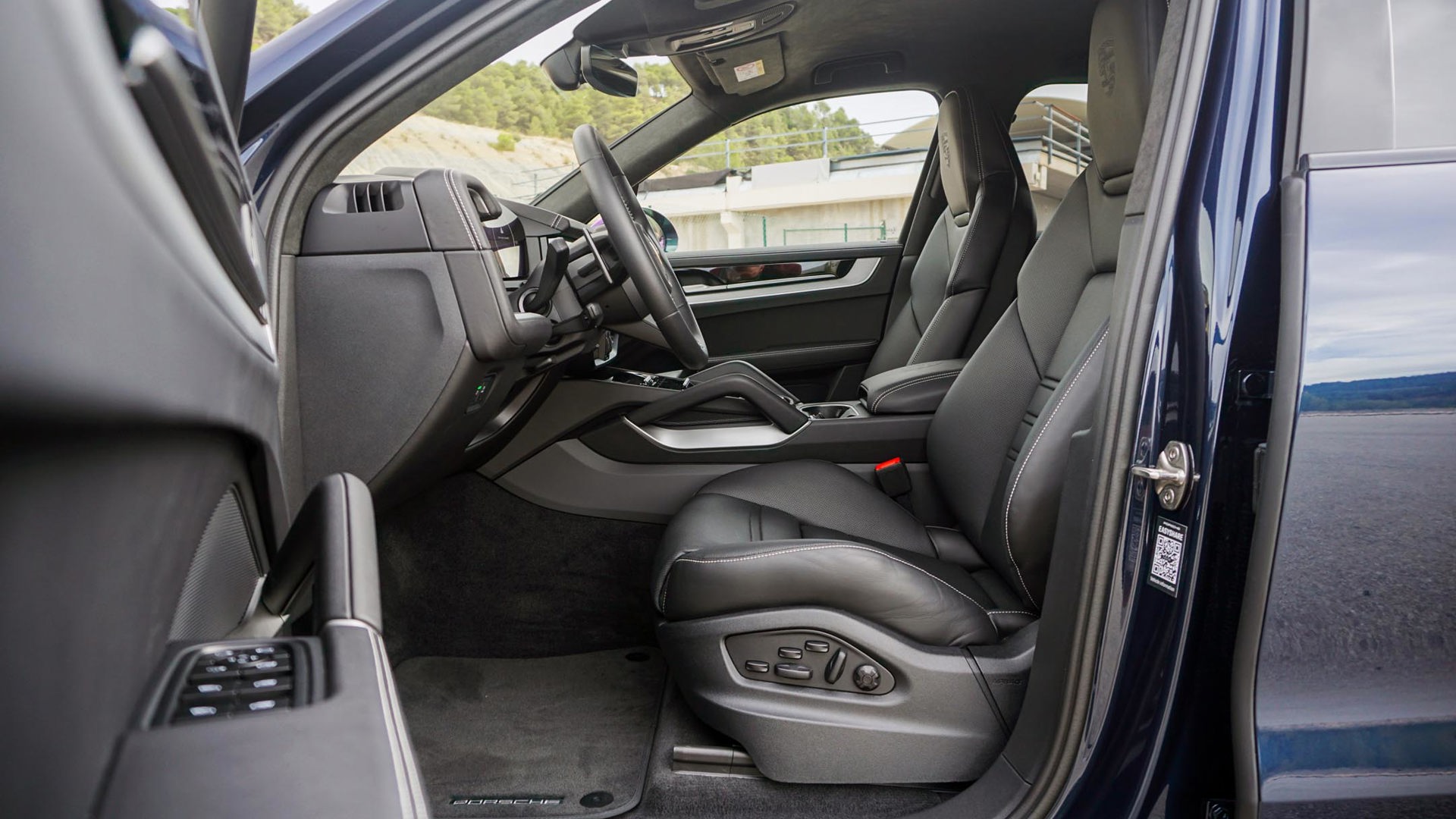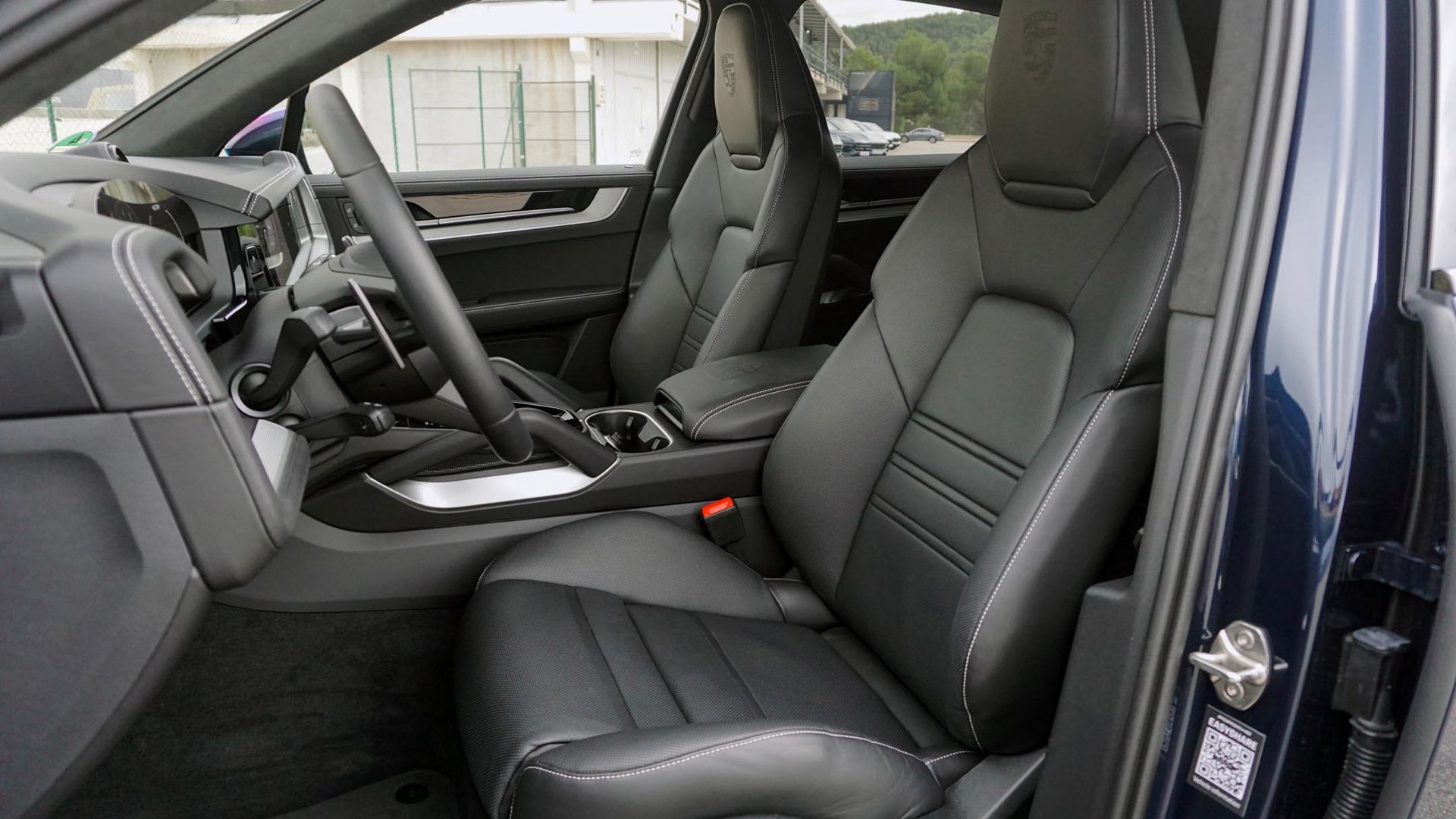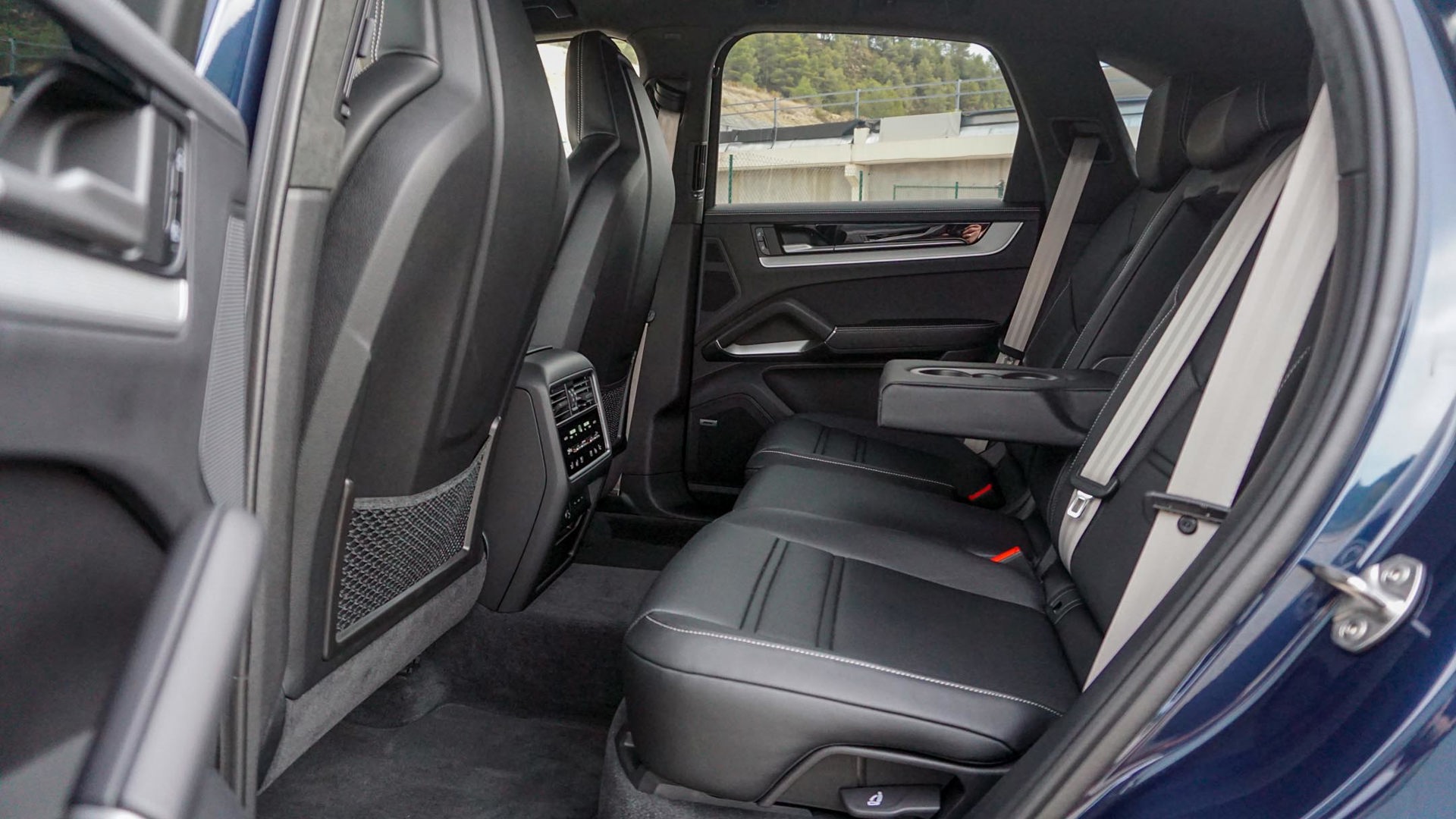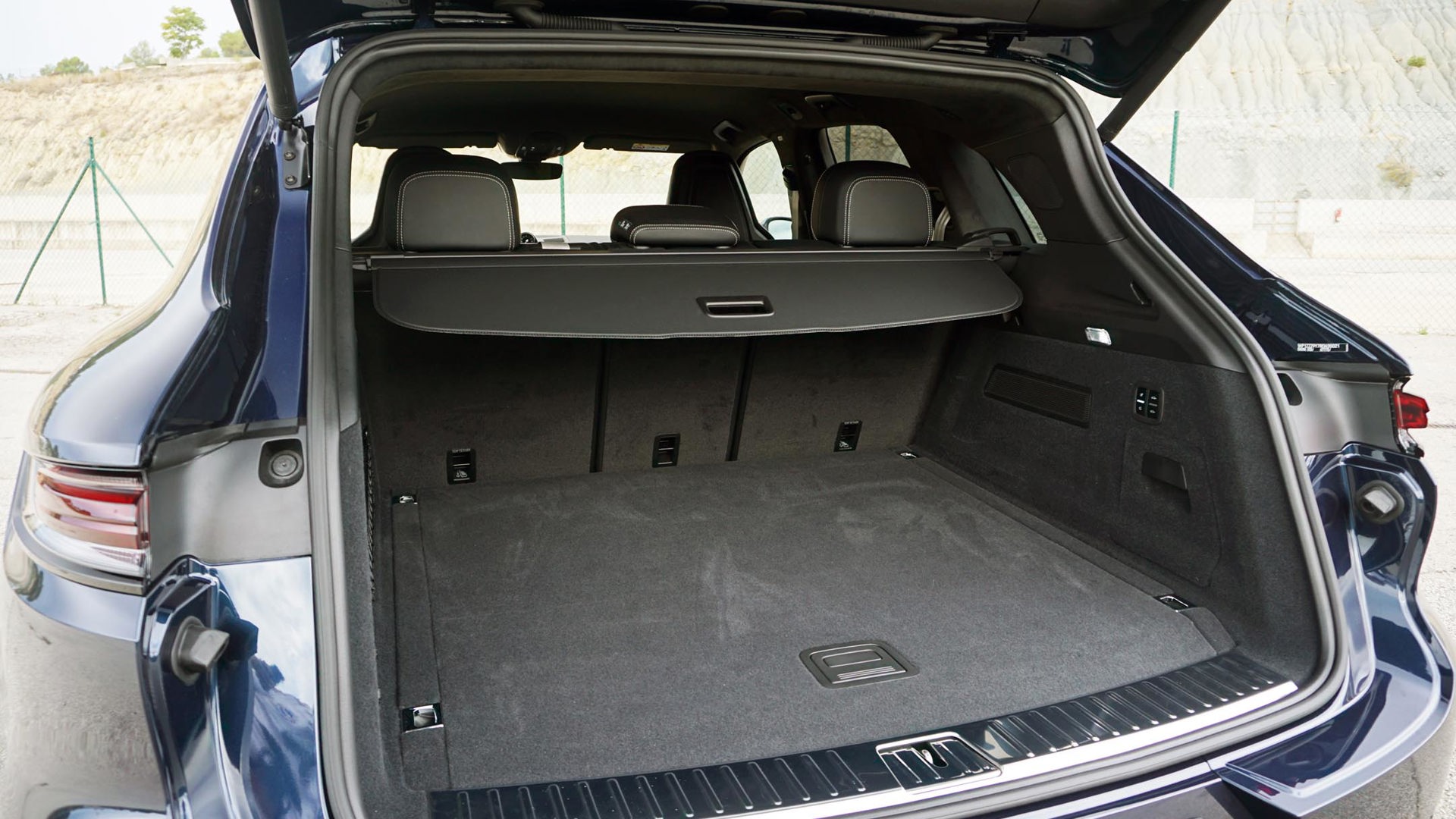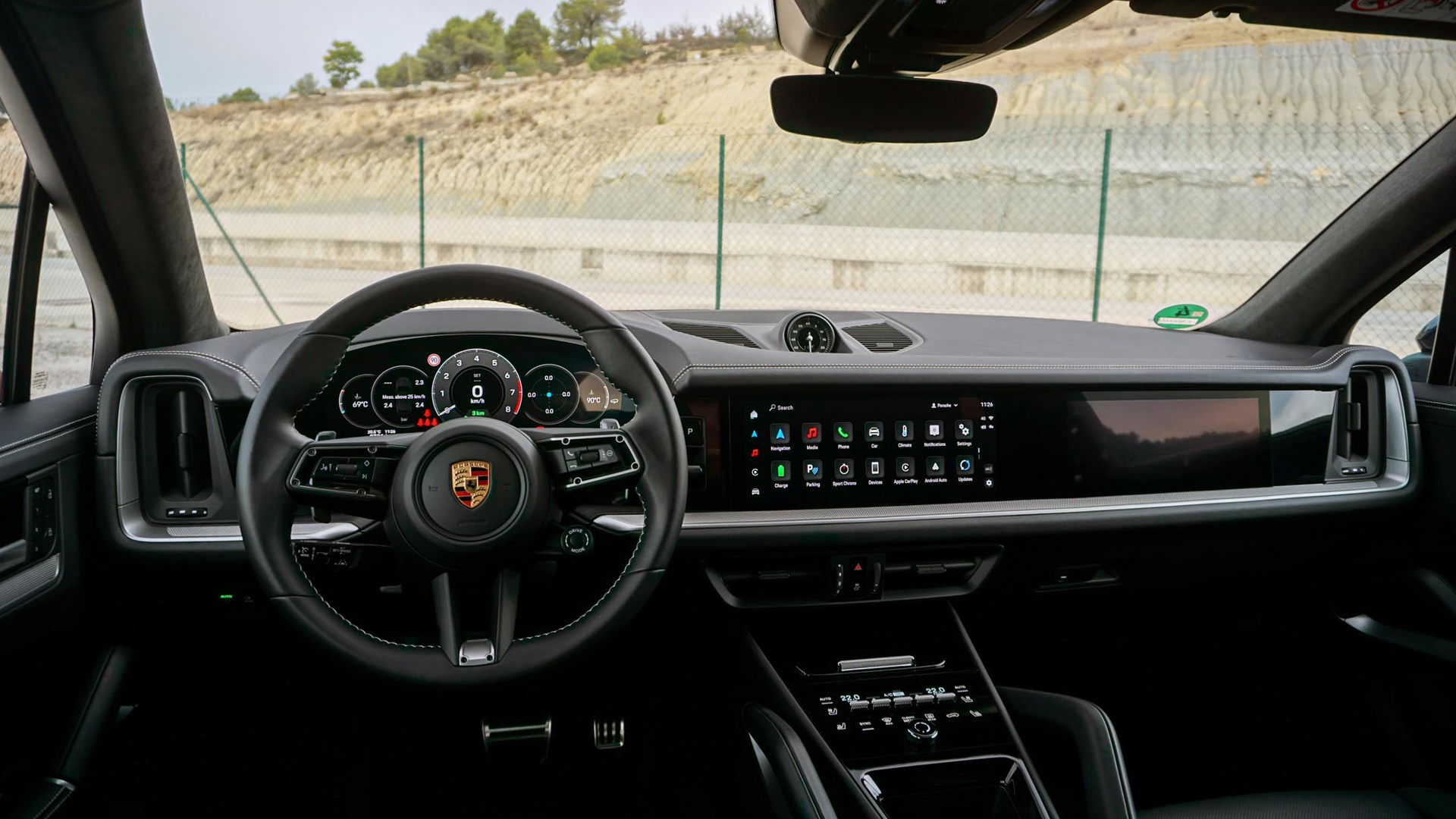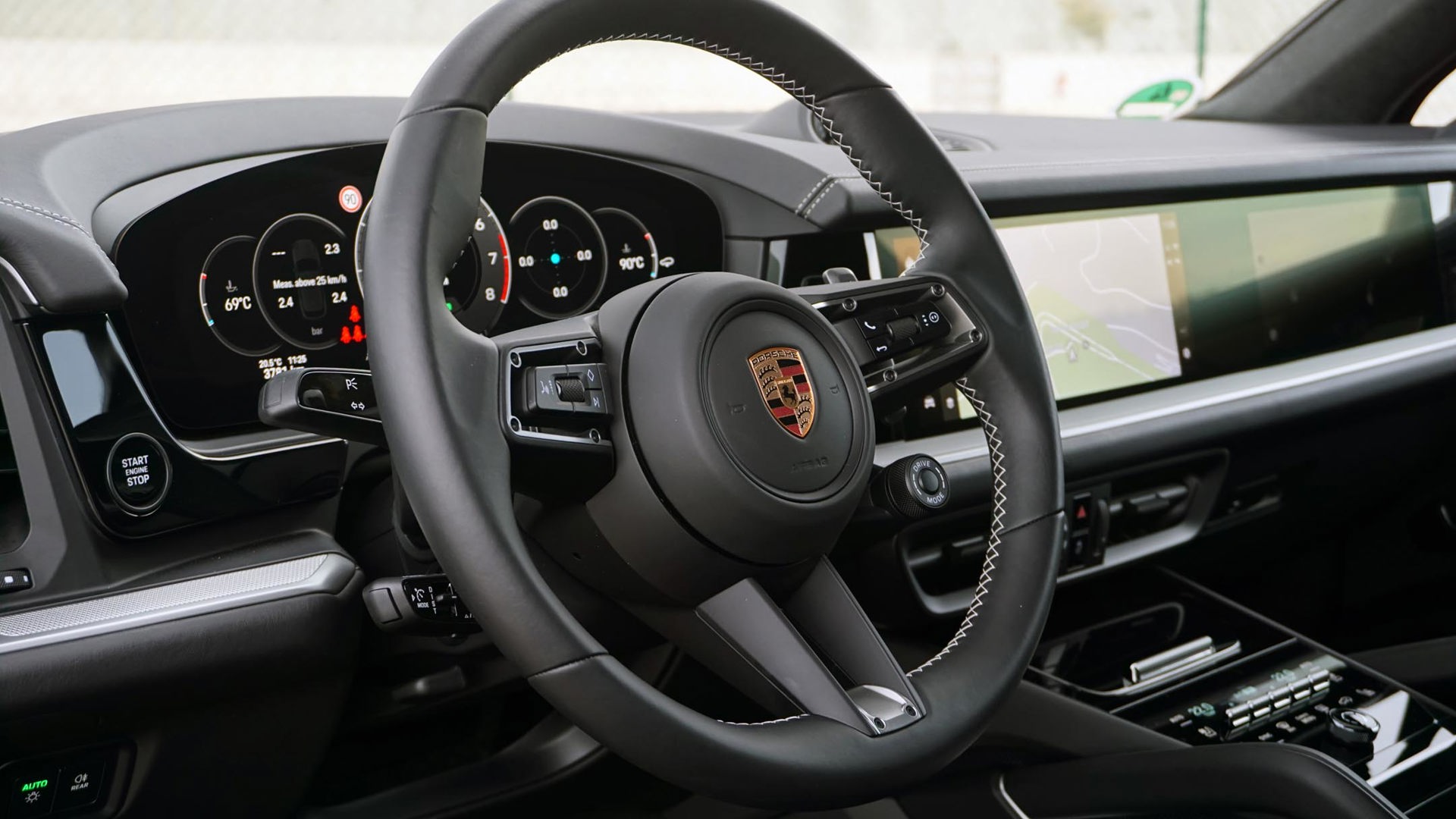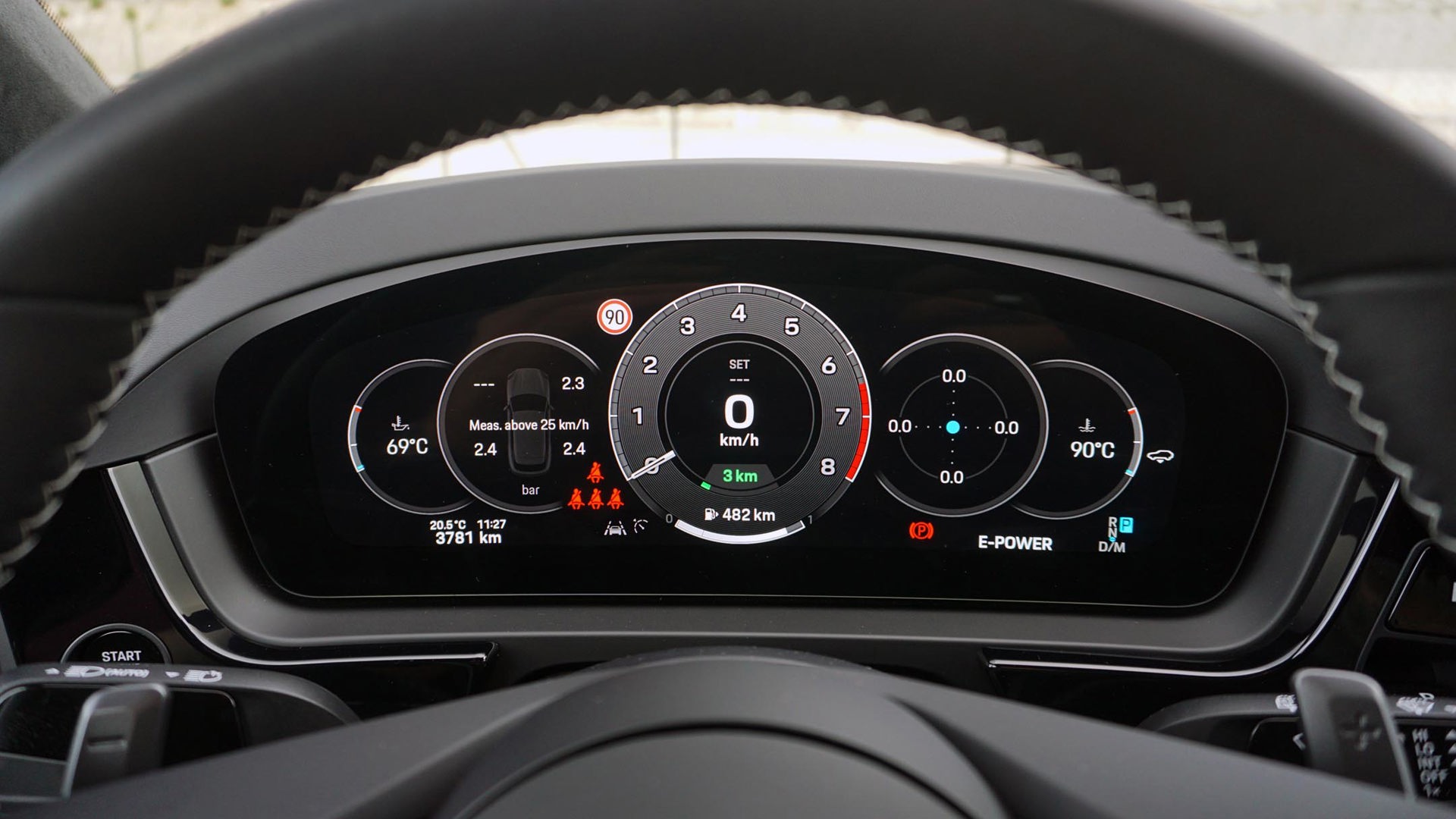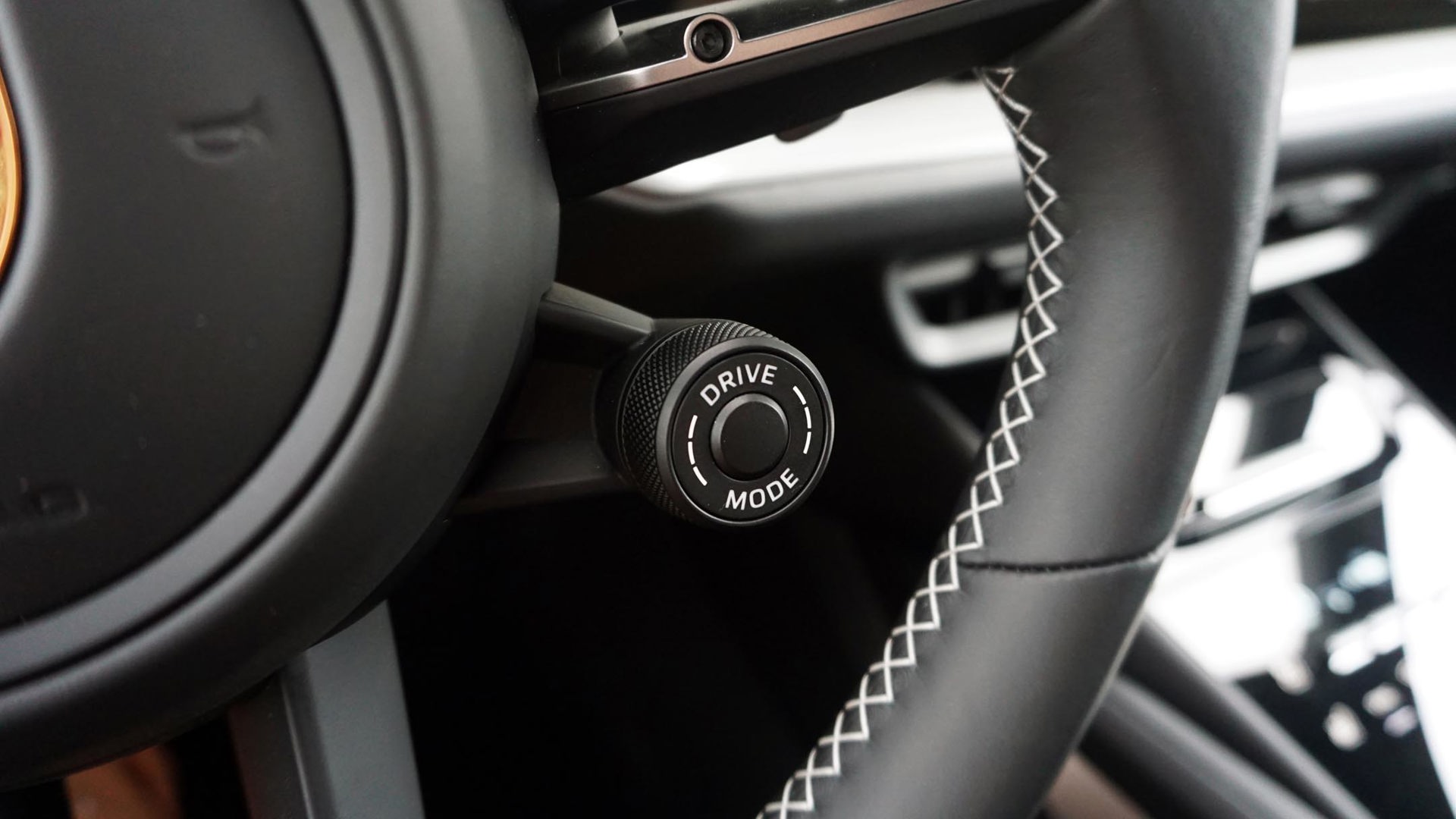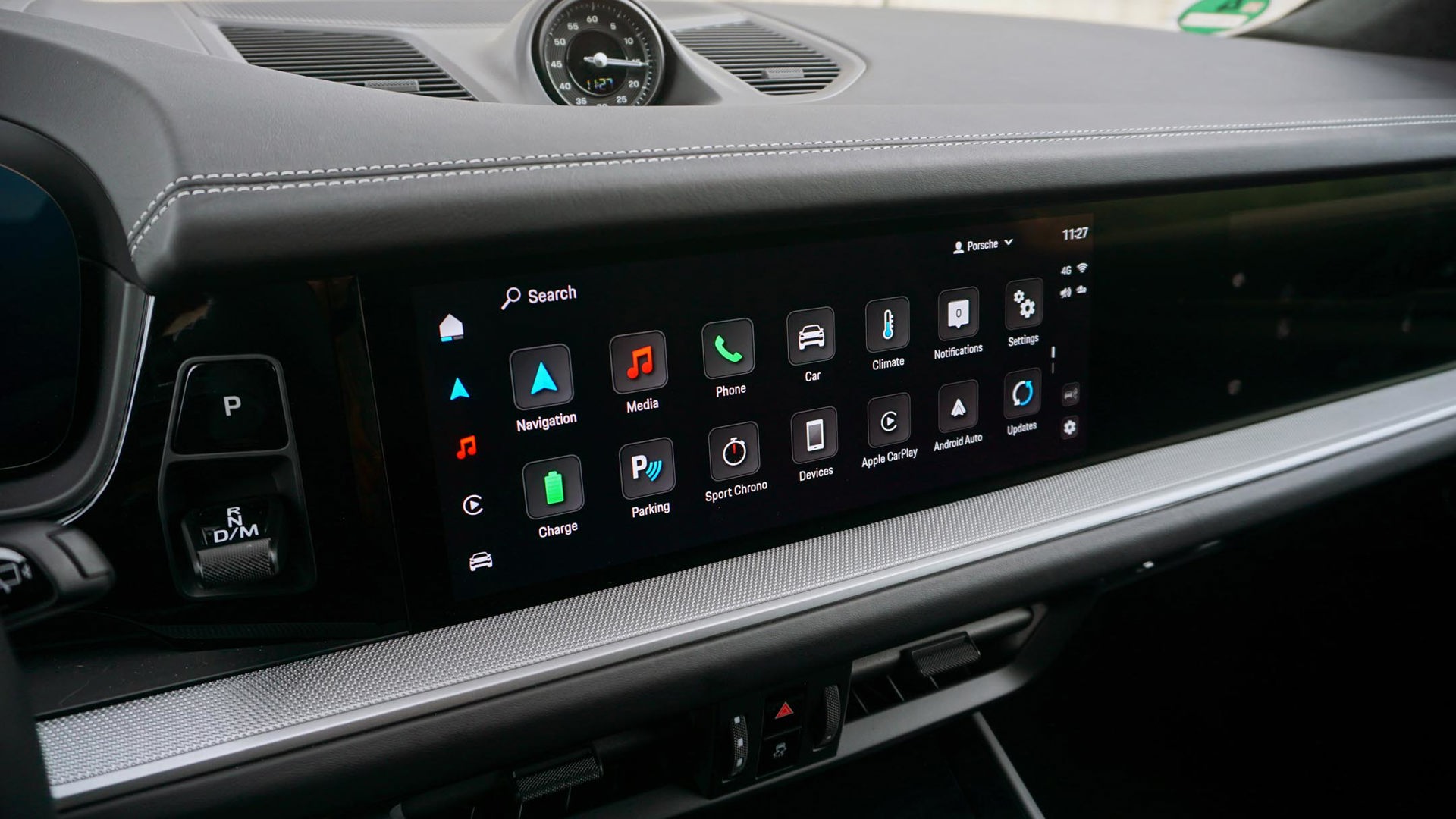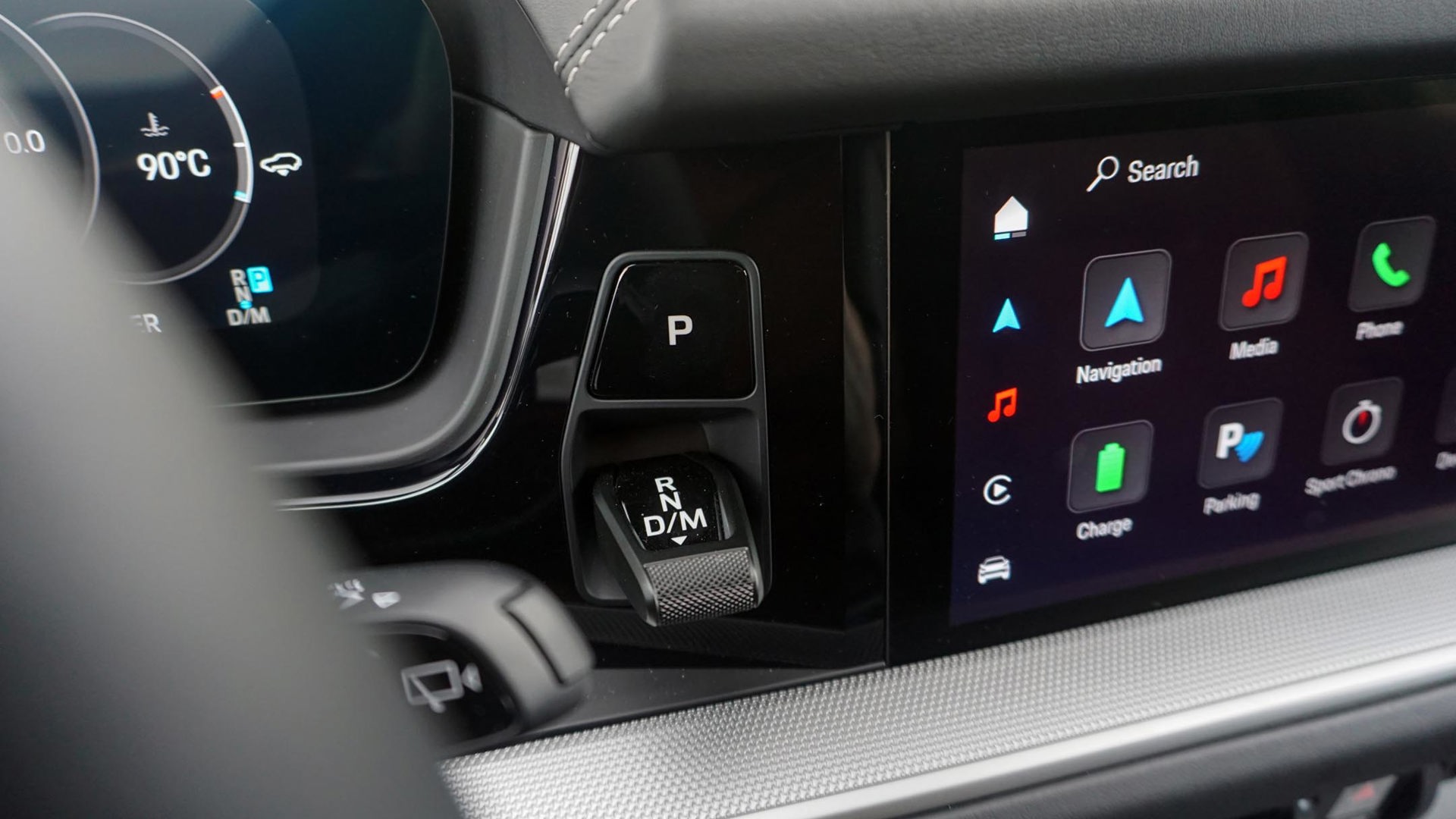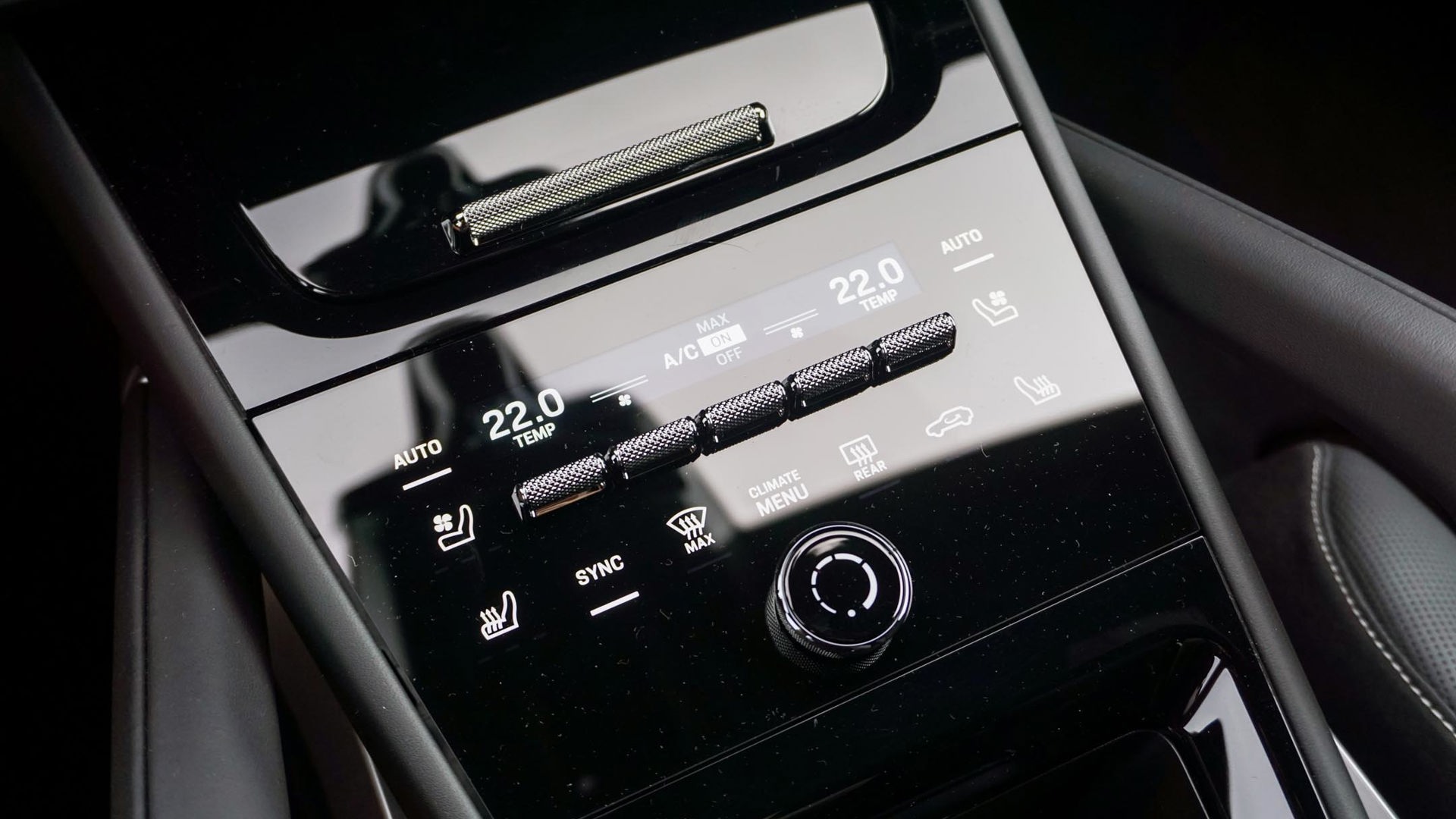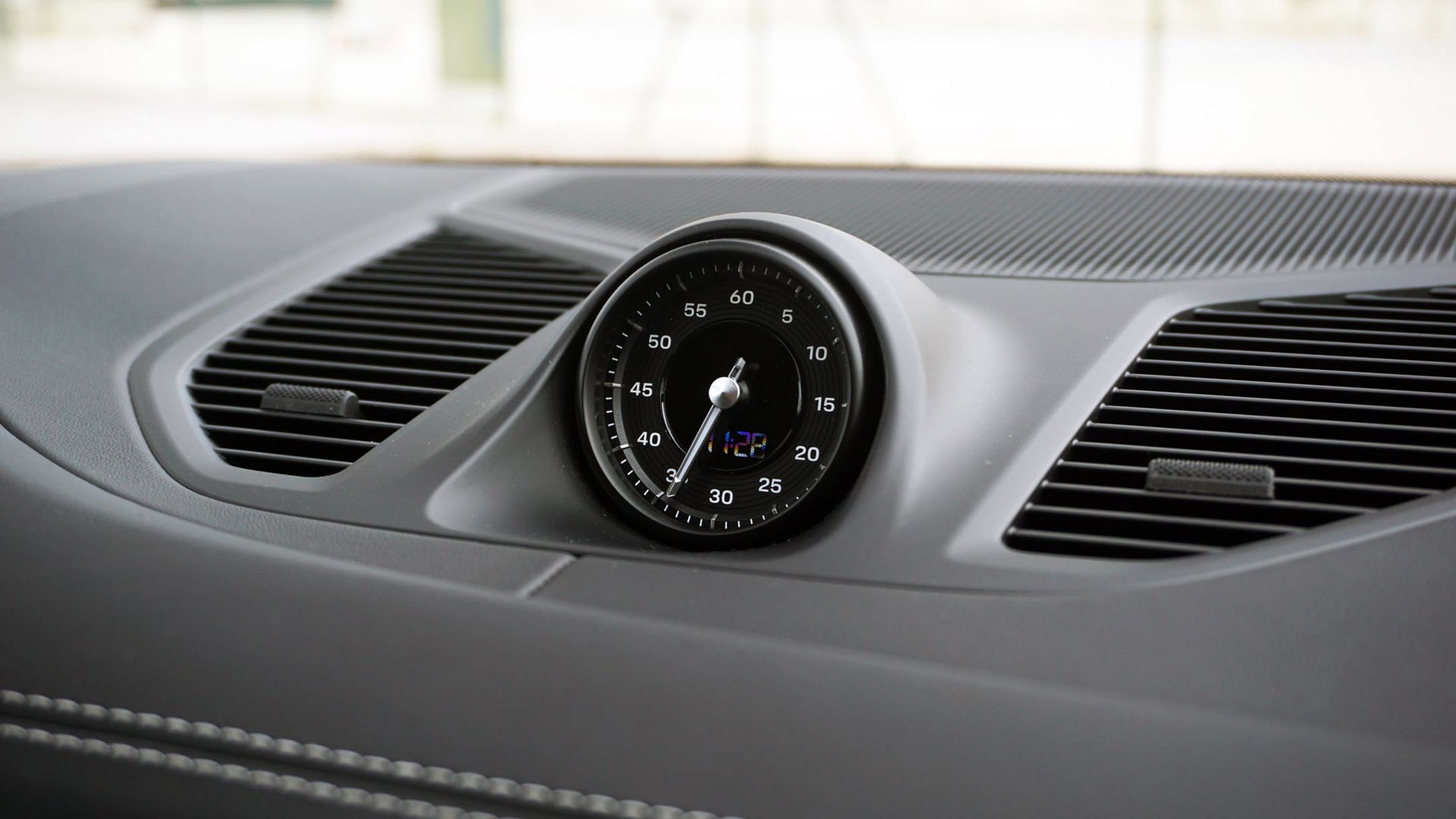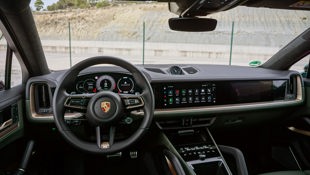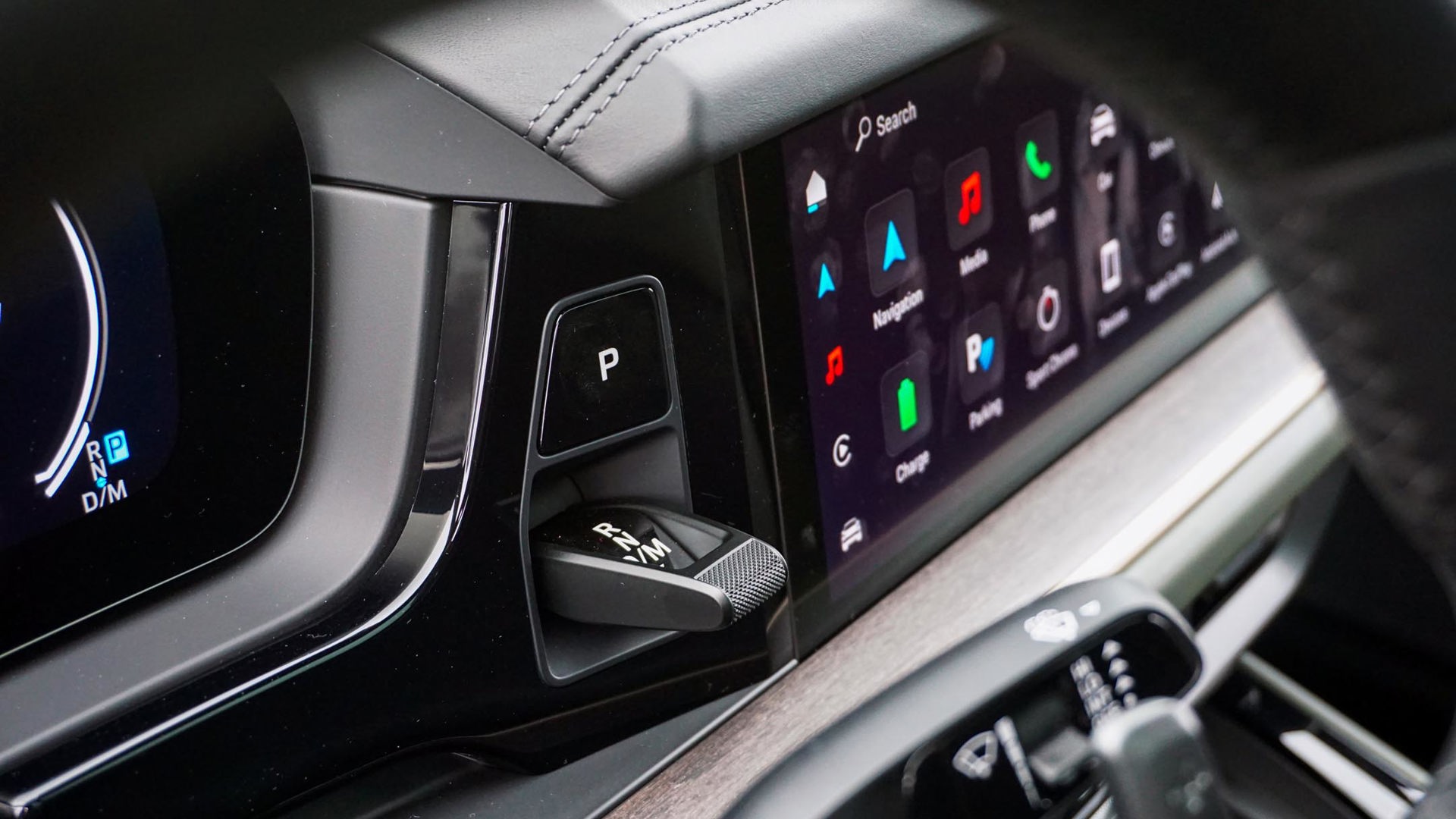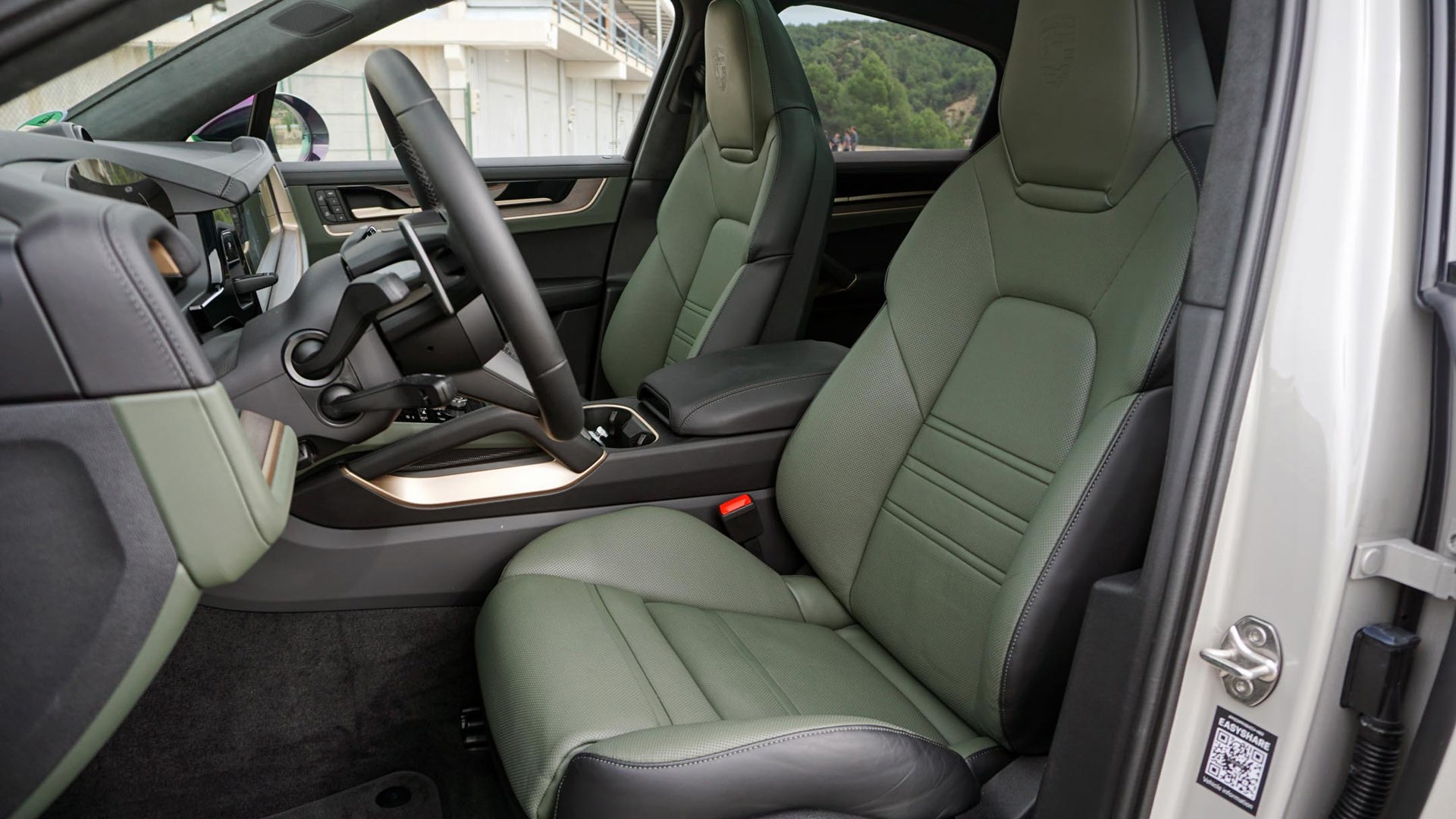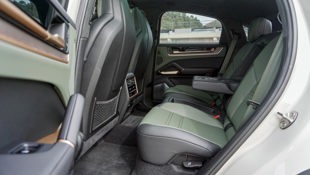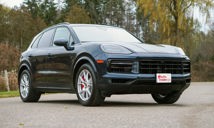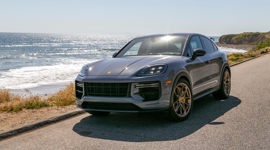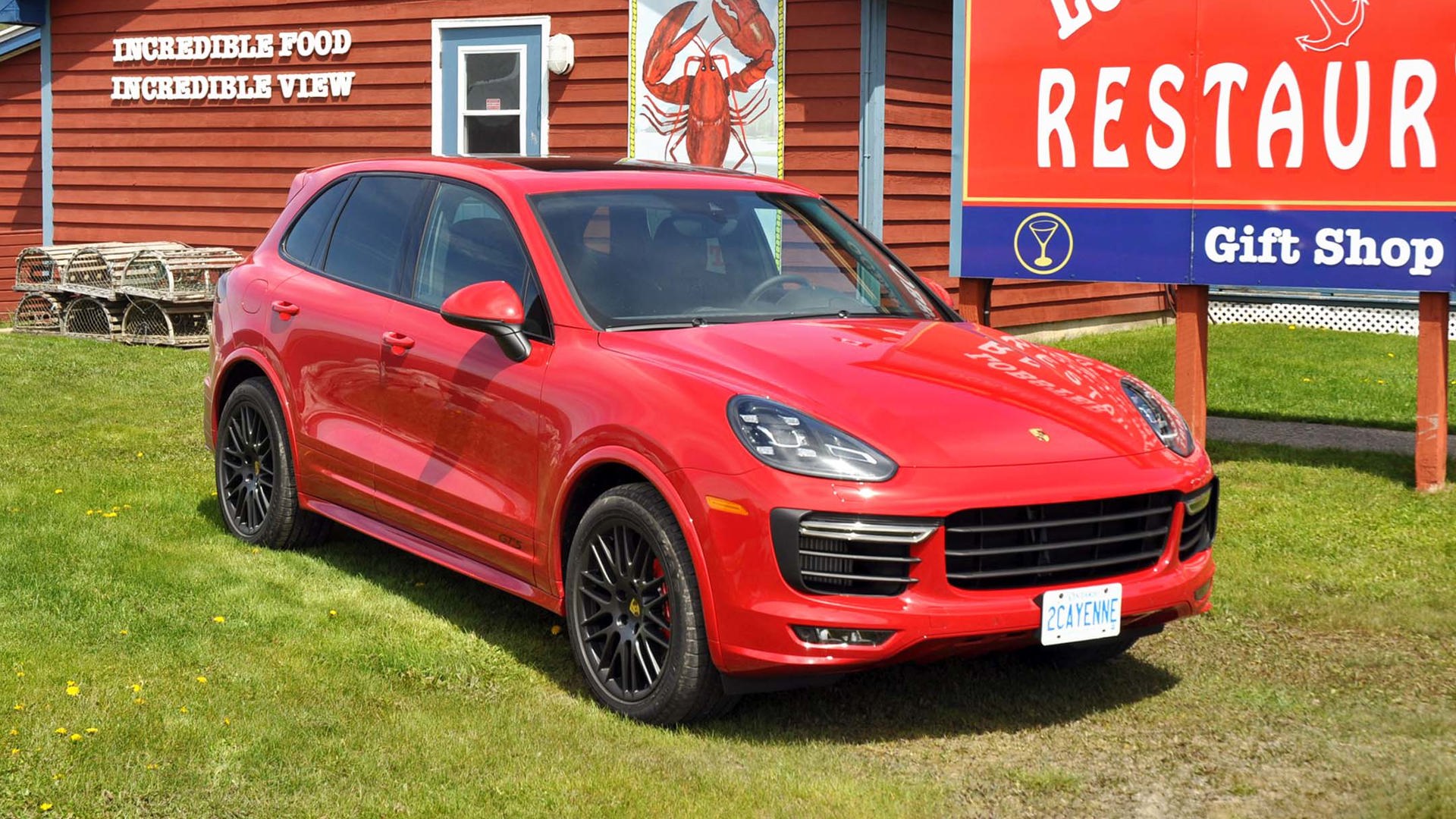Who knows – maybe it’s nothing more than a coincidence.
But it didn’t take long after the launch of BMW’s range-topping XM for Porsche to deliver a plug-in hybrid (PHEV) howler of its own. And boy, does it fly. We’re talking zero to 100 km/h in 3.7 seconds, and a top speed of 295 km/h – all in an SUV that can run on gas, electricity, or a combination of both.
There’s still a gas-only model that sits at the top of the Cayenne pack in Canada, but this PHEV version is more powerful than the Turbo GT. Significantly so, in fact, with the 2024 Porsche Cayenne Turbo E-Hybrid generating a combined 729 hp and 700 lb-ft of torque from its gas and electric motors. Add to that the signature Porsche precision, and this sport utility has upped the ante yet again.
PHEV Powerhouse
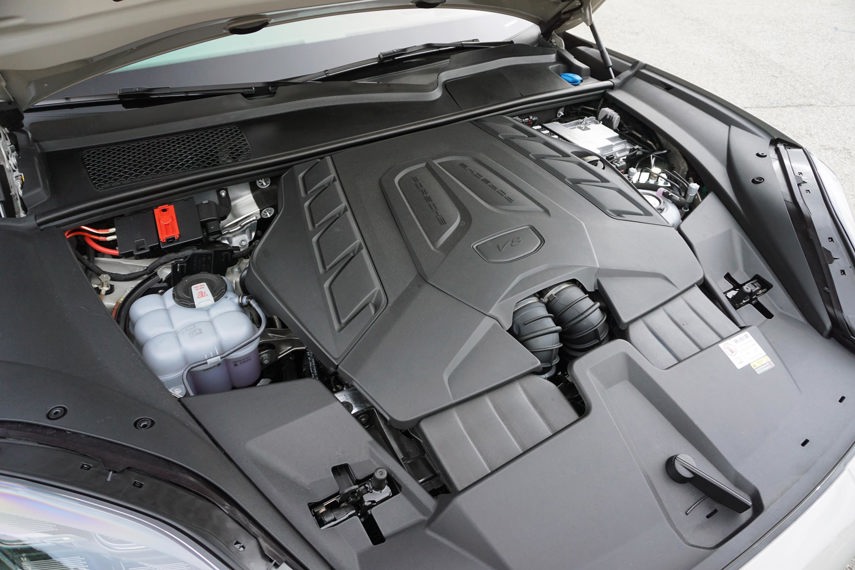
None of this is to disparage the brutish BMW XM, although by AutoTrader Editor-in-Chief Jodi Lai’s assessment it feels unfocused in its mission as the biggest, baddest offering from the Bavarian brand’s vaunted performance division. By contrast, this Cayenne has been executed in a manner befitting of the Turbo badge. Well, mostly.
First, let’s get to the good stuff. No sport utility out there comes across as solidly built as this one – a trait that’s common across the Cayenne lineup, but particularly amongst the trio of PHEV trims thanks to their extra heft that’s (relatively) evenly distributed front to back. It leads to an even more firmly planted feel that’s befitting of a proper premium vehicle, which this unquestionably is.
Whether it’s this Turbo or either of the other two so-called E-Hybrid trims, all gas – electric Cayennes benefit from a bigger battery than before, plus a new electric motor that’s sandwiched between the transmission and gas engine. The battery offers more emissions-free range thanks to its increased capacity – 25.9 kWh compared to 17.9 – while the electric motor is more powerful than the previous generation’s, generating 130 kW on its own versus 100 kW before.
Setting this range-topping version apart is what all that electrical stuff is paired with: a 4.0L twin-turbocharged V8 that’s good for 591 hp on its own. Net system output jumps to 729 hp when the gas and electric motors are working in unison, while combined torque is a staggering 700 lb-ft. (For the sake of comparison, the BMW XM generates a combined 644 hp and 590 lb-ft of torque.)
A Flying Family Hauler
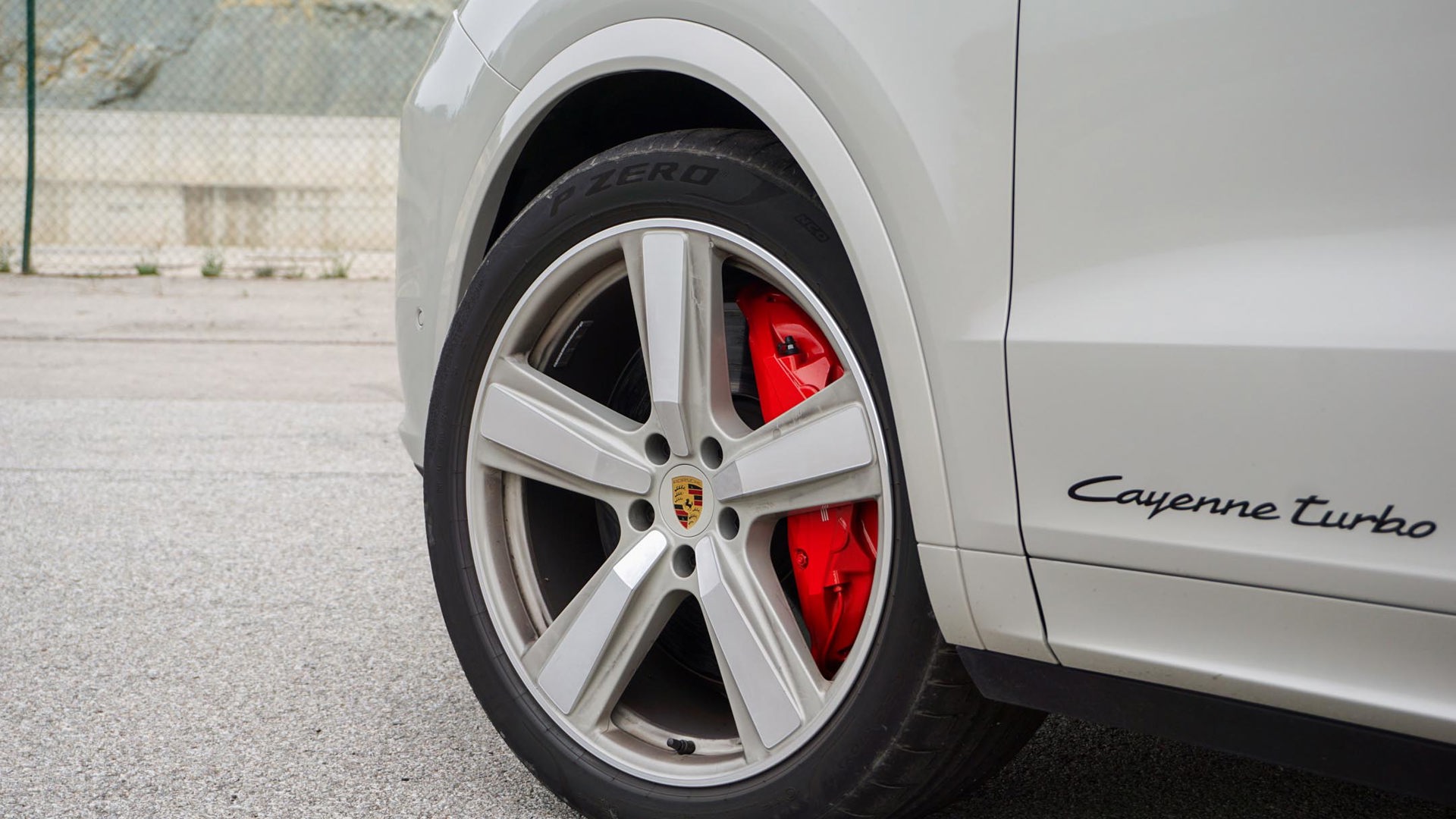
Of course, there’s more to this PHEV package than pure power. Both the Cayenne S E-Hybrid and this range-topping Turbo ride on a standard air suspension setup that’s been overhauled to better balance comfort and performance, according to Porsche. Call it a successful mission, with the new two-chamber air springs soaking up bumps while minimizing most of the body roll that might be expected from a vehicle that tips the scales at some 2,570 kg (5,666 lb) in conventional form. (The coupe version weighs a little more, probably due to its deployable rear spoiler.)
More suspension goodies include twin-valve adaptive dampers and all manner of electronic trickery, while the brand’s famed Porsche Stability Management (PSM) system allows the outer limits of performance to be explored without fear of total failure. Get a little overzealous with the throttle or brake too late for a corner and it’s PSM to the rescue. (A Porsche rep playfully dubbed the system “please save me” with good reason.)
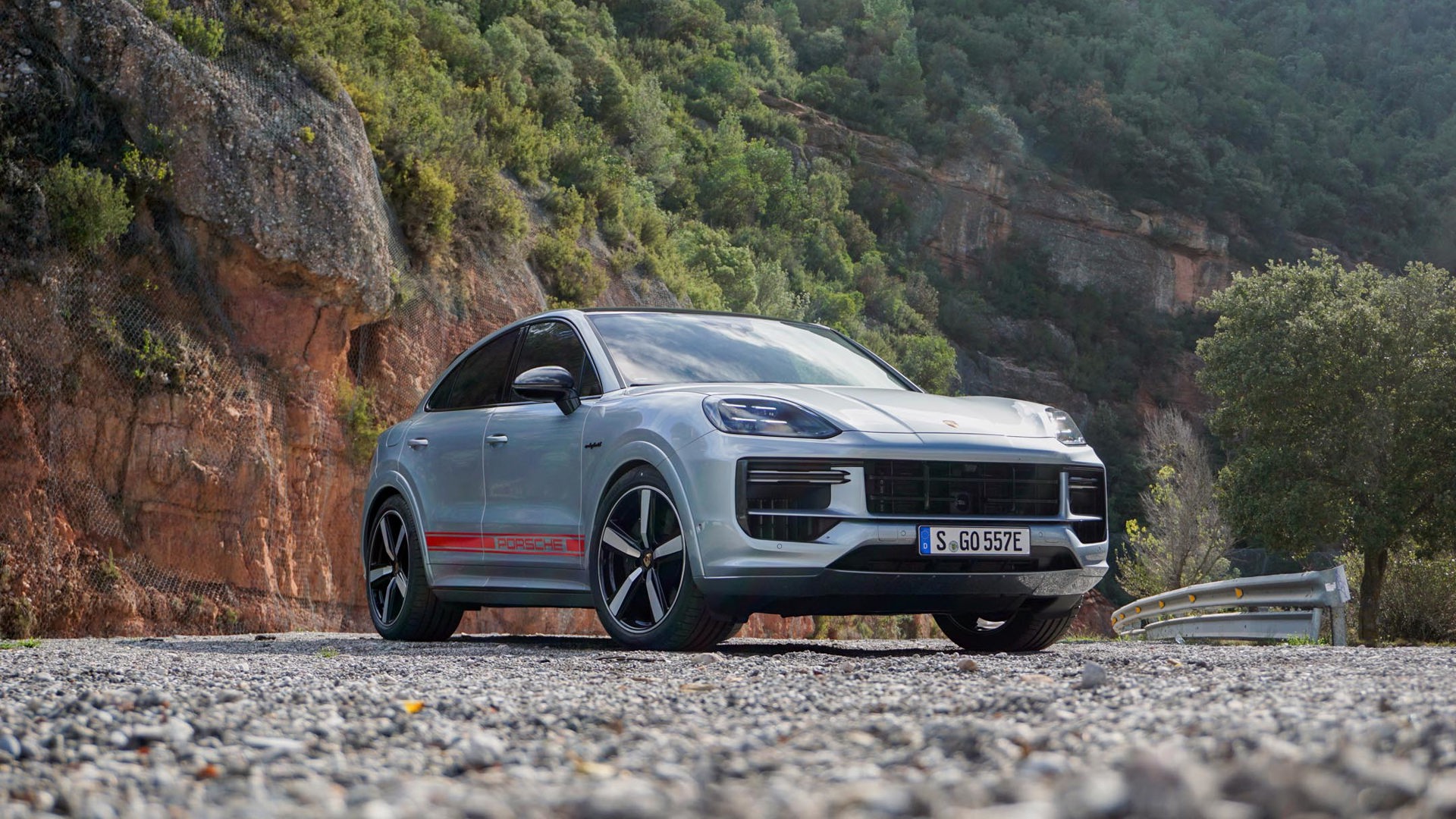
Add it all up, and there’s no doubt this is one dynamically gifted machine. The exceptional – and exceptionally forgiving – Circuit Parcmotor Castellolí was the perfect playground to push the Cayenne Turbo E-Hybrid hard, with a little more than four km of sweeping corners and big straights to chase down 911 Turbos driven by instructors with superior skills to those piloting the PHEVs. And with all that combined output from the gas – electric powertrain to work with, it wasn’t difficult to reel in those much lighter cars when rolling back onto the throttle and unwinding the wheel on corner exit. Yes, the Cayenne’s large and heavy, with all its weight carrying it deep into corners, but it’s nothing the optional carbon-ceramic brakes don’t counteract with ease.
Otherwise, the entire experience could be described as drama-free – perhaps a little too much so. There was hardly a hint of unanticipated excitement on the track as the Cayenne did exactly what was expected time and again. Granted, it’s a thrilling machine – hurdling along at upwards of 200 km/h before diving into a corner will always be enough to make adrenaline pump and palms sweat, or at least it should – but in the end it’s a bit like watching The Sixth Sense for the second time, every time. There’s a predictability to the plotline – a story to which the beginning, middle, and end are already known.
An Everyday SUV
Even with its otherworldly capability just a spin of the steering wheel-mounted drive mode dial away, it’s perfectly reasonable to use this SUV for more mundane activities than tearing up the track. That’s where its electrical components come in handy once again, with plenty of emissions-free driving range and faster charging times than before.
While North American numbers weren’t available at the time of this writing, the European ones are promising. Estimates of 70 to 73 km combined using the slightly more generous Worldwide Harmonised Light Vehicle Test Procedure (WLTP) methodology means most short drives can be completed without burning a drop of gas, while the 11-kW onboard charger is capable of juicing the battery back up in a little more than two hours, according to Porsche.
Should some spirited driving be in order, be prepared to contend with the sheer size and weight of this sport utility. There’s an old saying that it’s better to drive a slow car fast than the other way around, and the same very much applies to SUVs. Dashing between switchbacks before carefully negotiating each turn isn’t exactly enjoyable, with average speeds coming up well short of anything this Cayenne is capable of. Then again, such are the compromises that come with a vehicle that has room inside for a family of four and enough towing capacity to strap a reasonably sized camper to the back, all while moonlighting as an absurdly accurate – if slightly oversized – track toy.
Final Thoughts
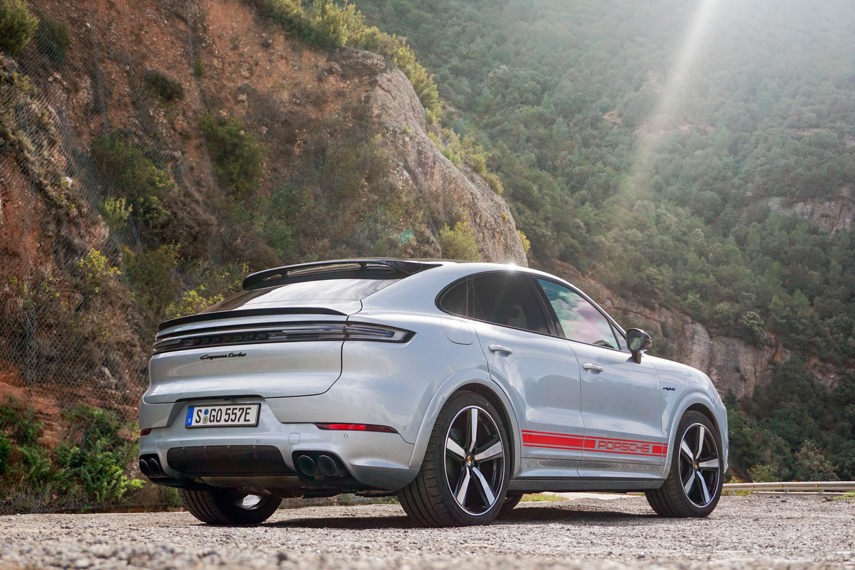
There’s no questioning the capabilities of the 2024 Porsche Cayenne Turbo E-Hybrid, but those expecting a hair-raising experience behind the wheel won’t find it here. It’s not that it isn’t exciting to toss this sport utility around a track (although how many owners might actually do so remains unclear), or blast off into the stratosphere with the help of all that output. And to some this PHEV might well be better precisely because it’s so easy to anticipate its next move. However, there’s little in the way of the highwire theatrics this brand’s products have long been known for, with this SUV feeling a bit too dialled in when what it could use is a little more devilishness.
The 2024 Cayenne Turbo E-Hybrid is available to order now, with deliveries expected to start in the second quarter of next year. Pricing starts at $171,200 for the conventional version, while the coupe rings in at $176,300 before options, extras, and taxes.

